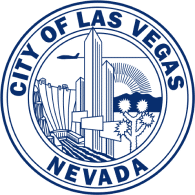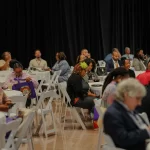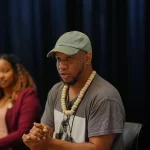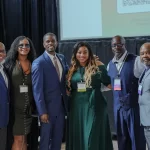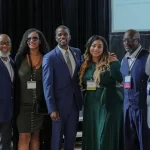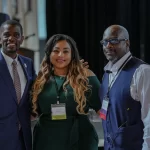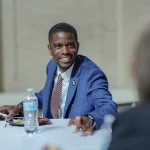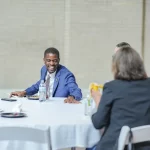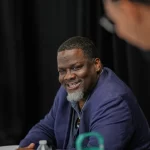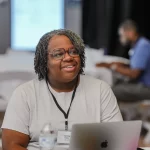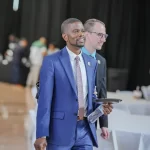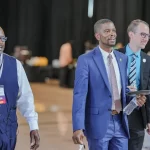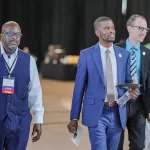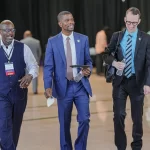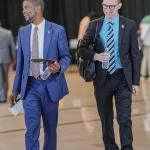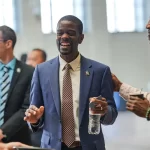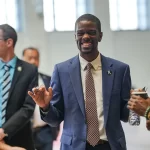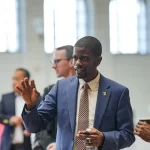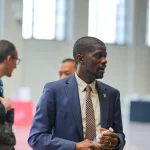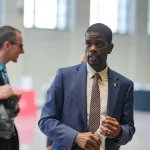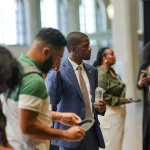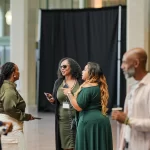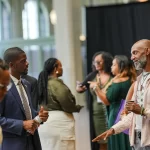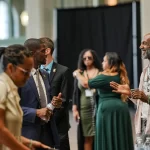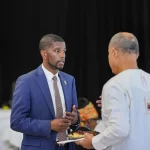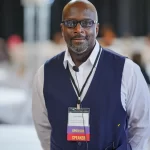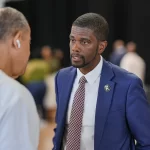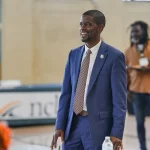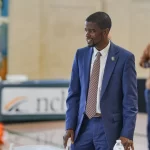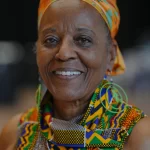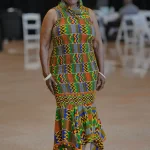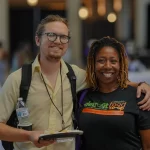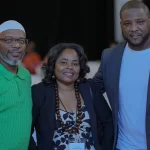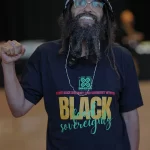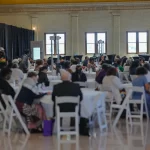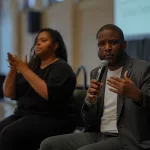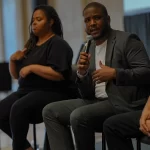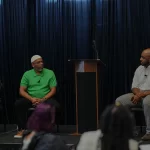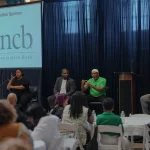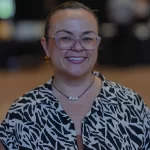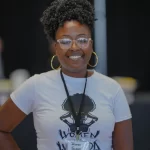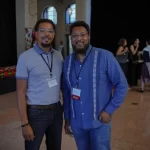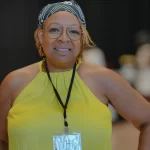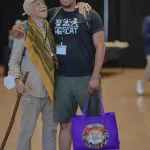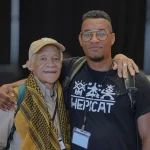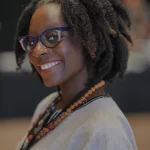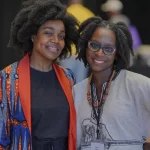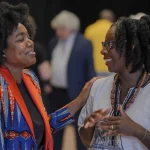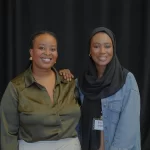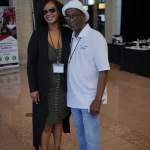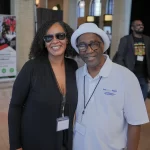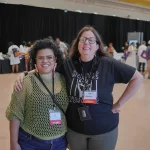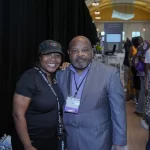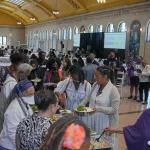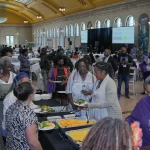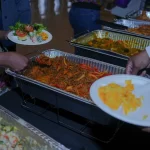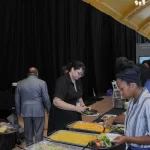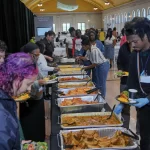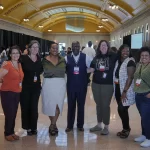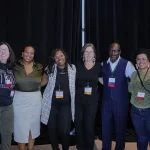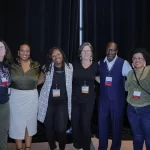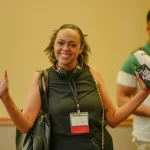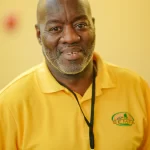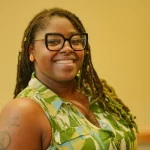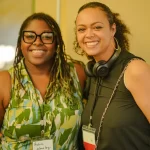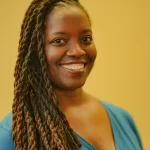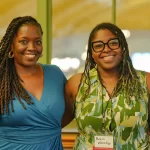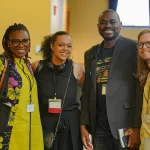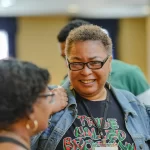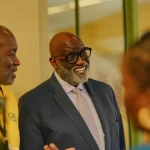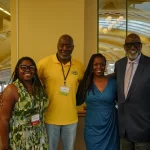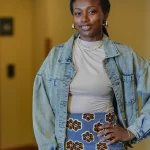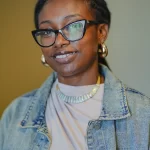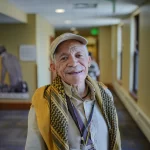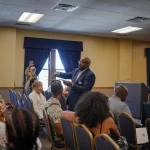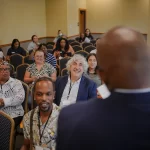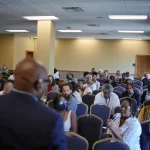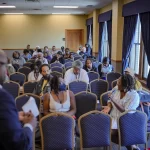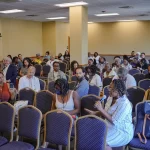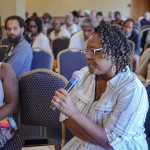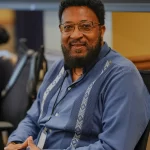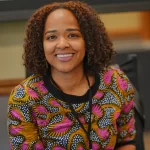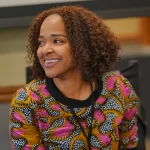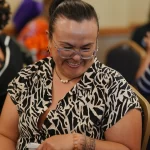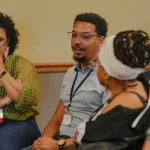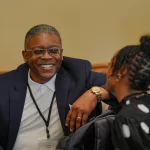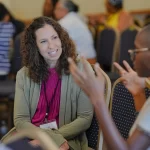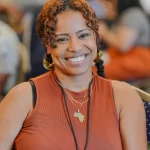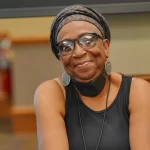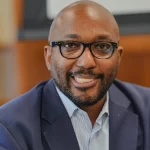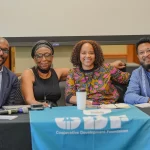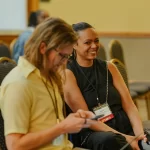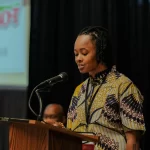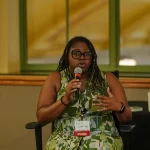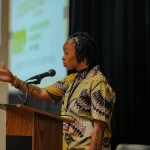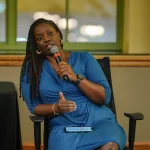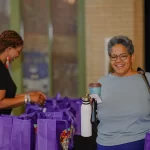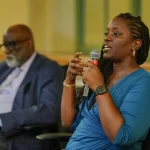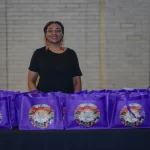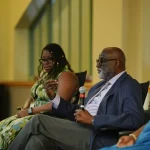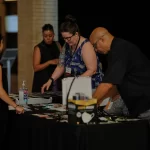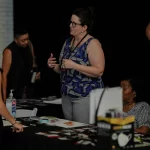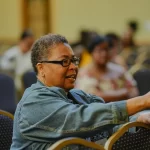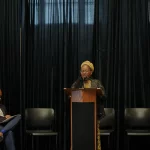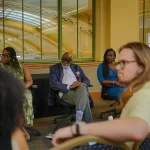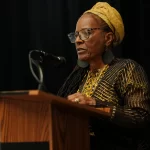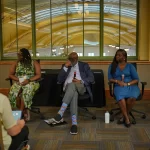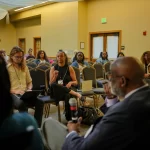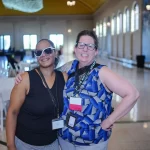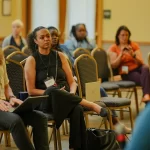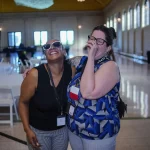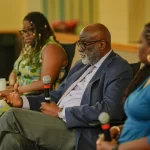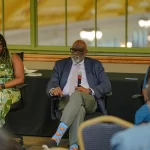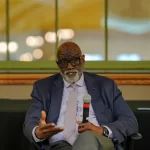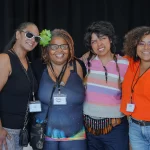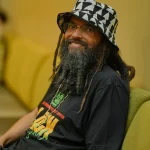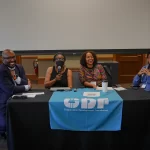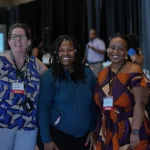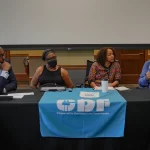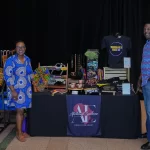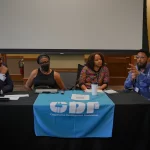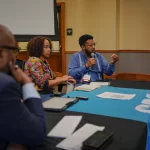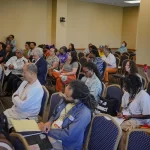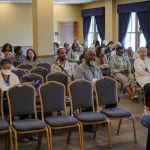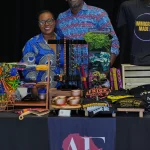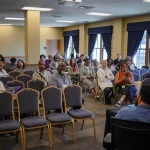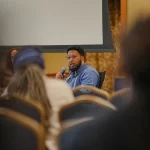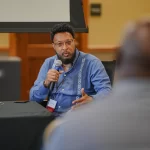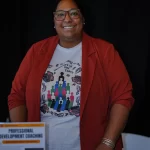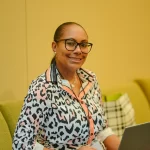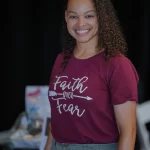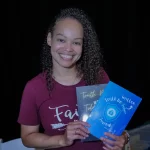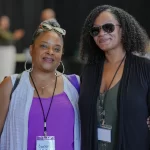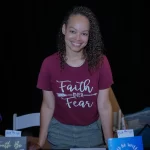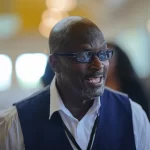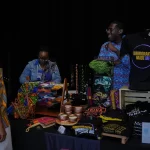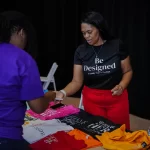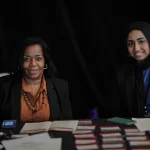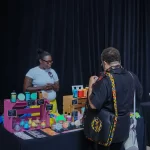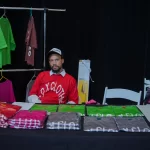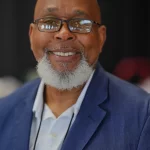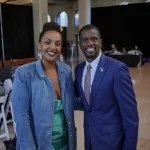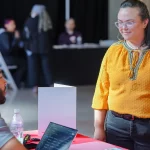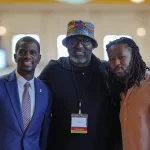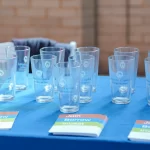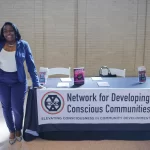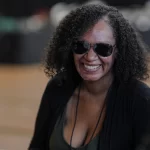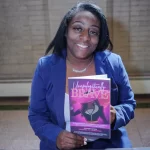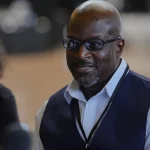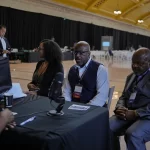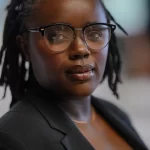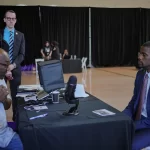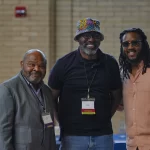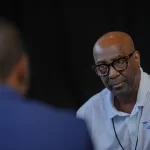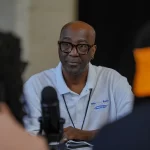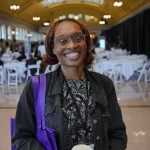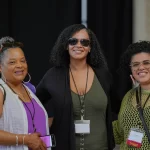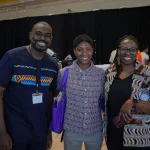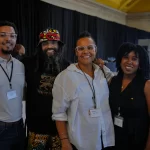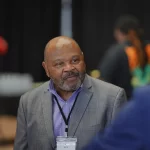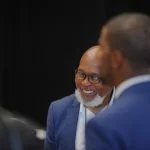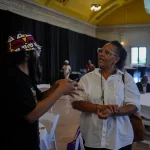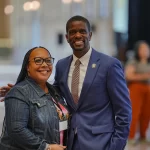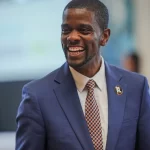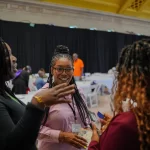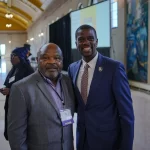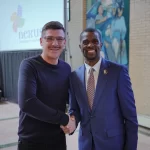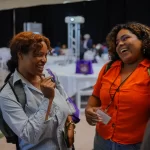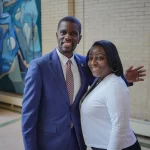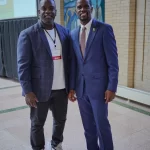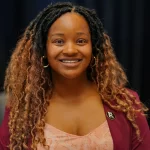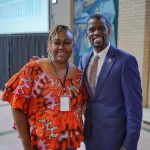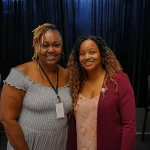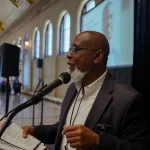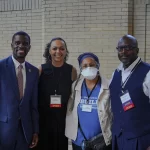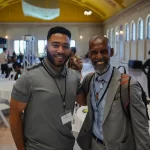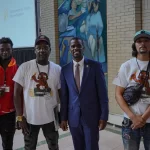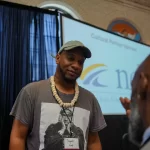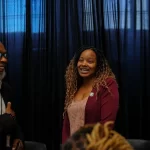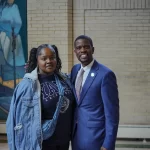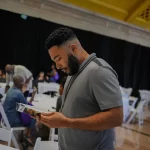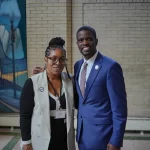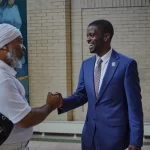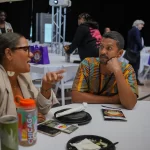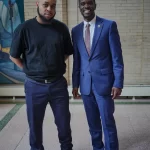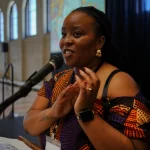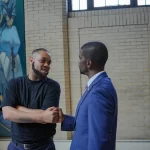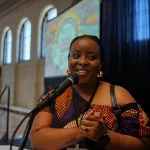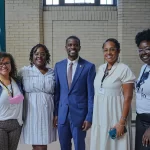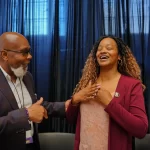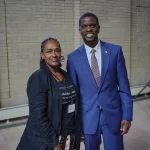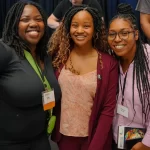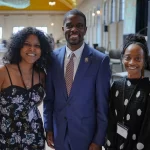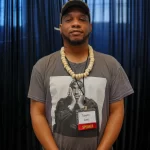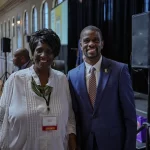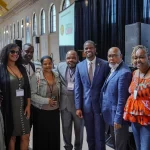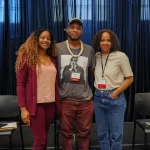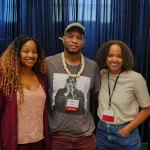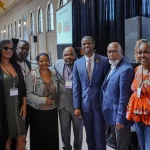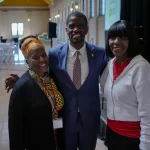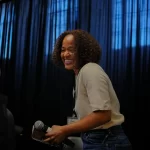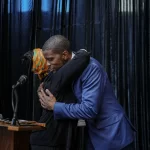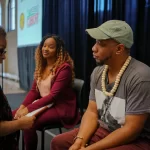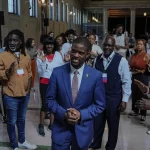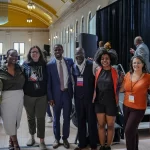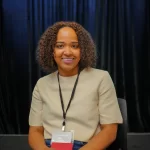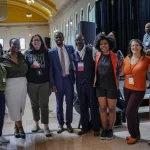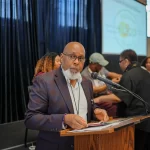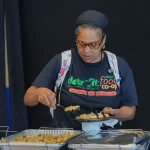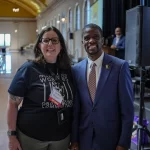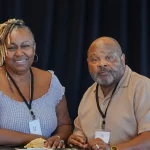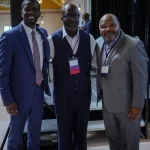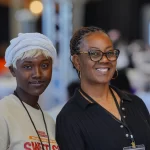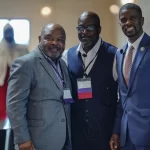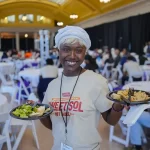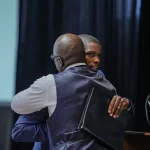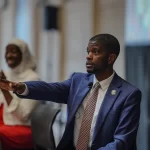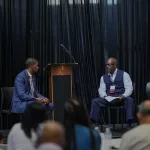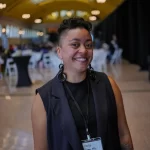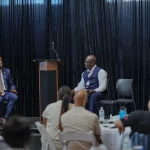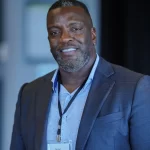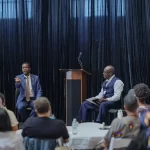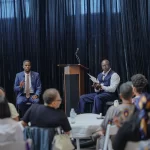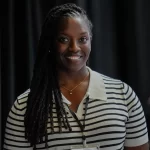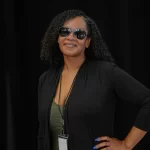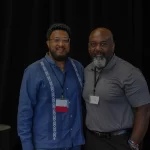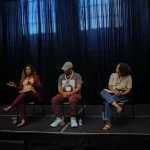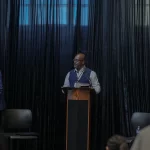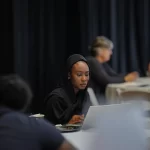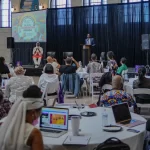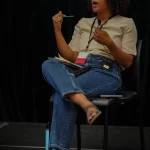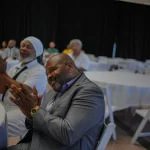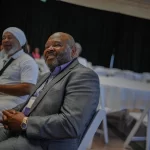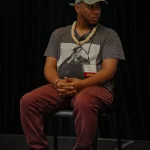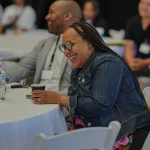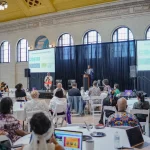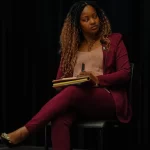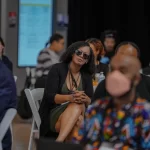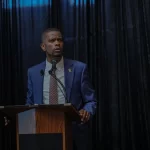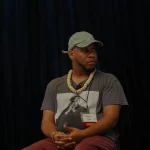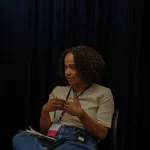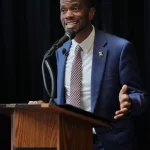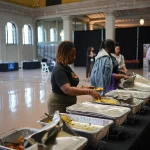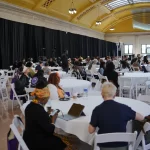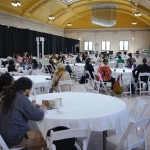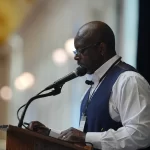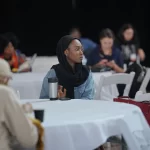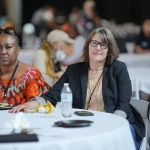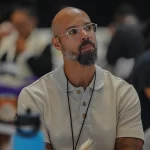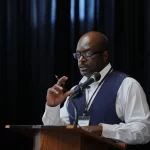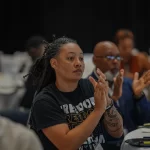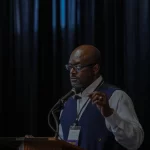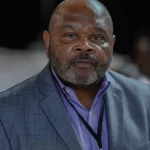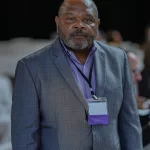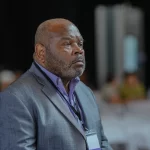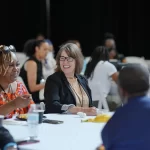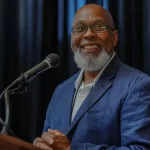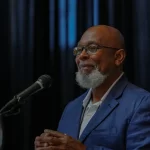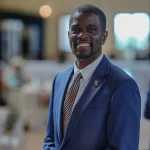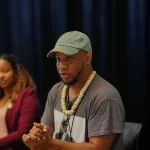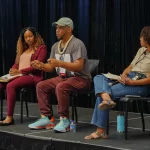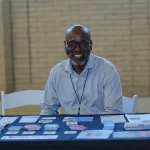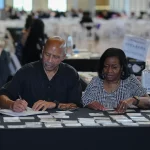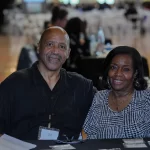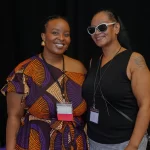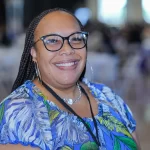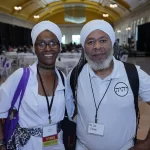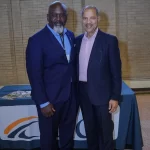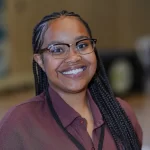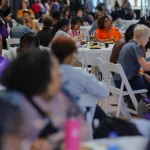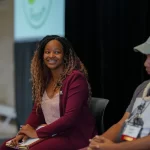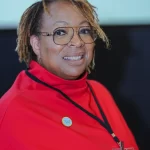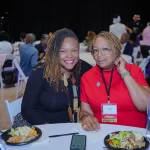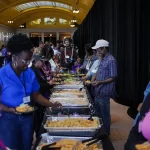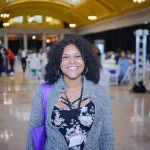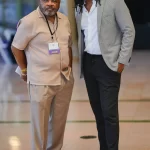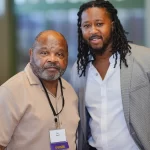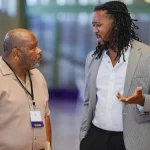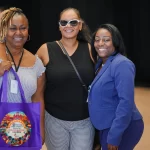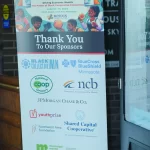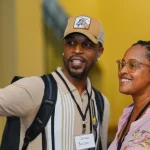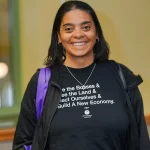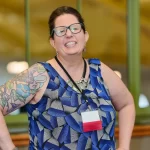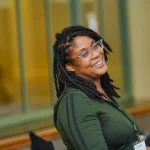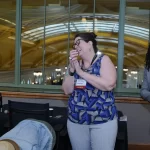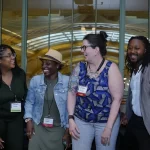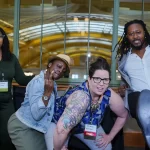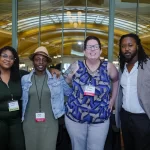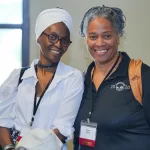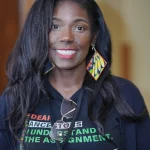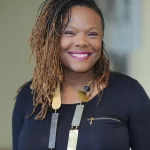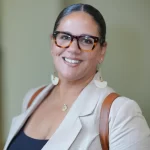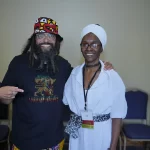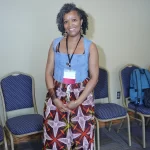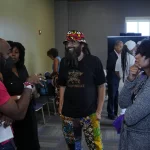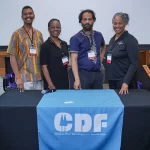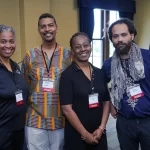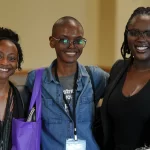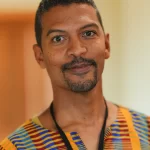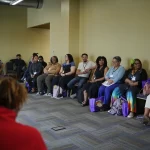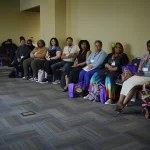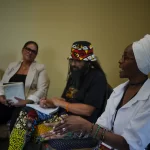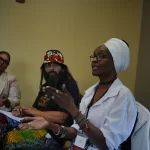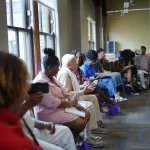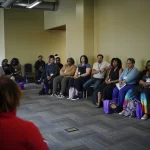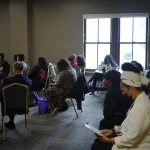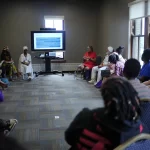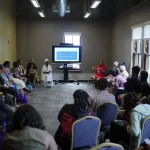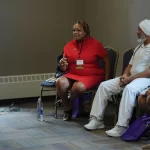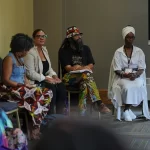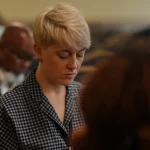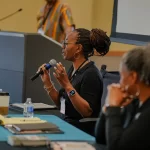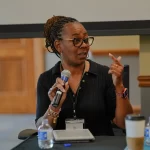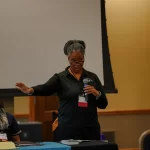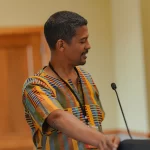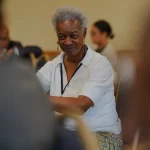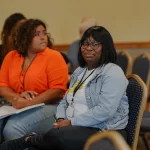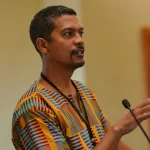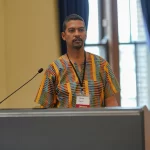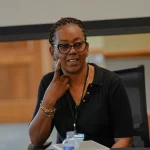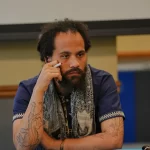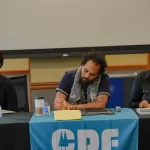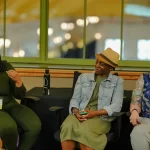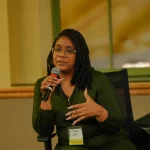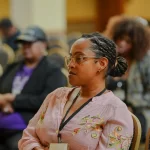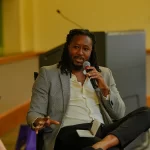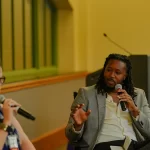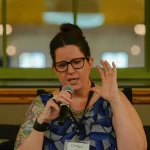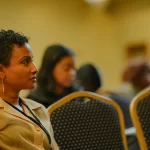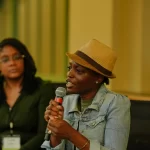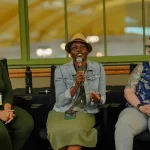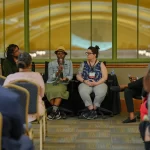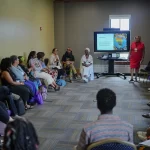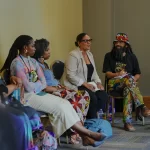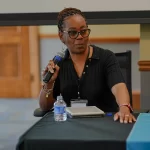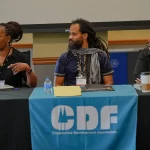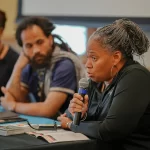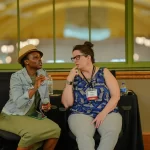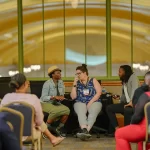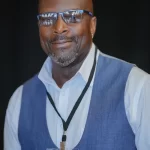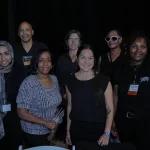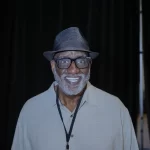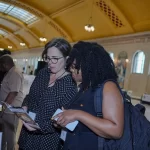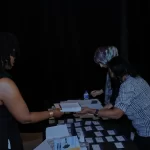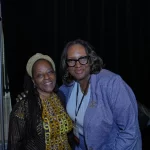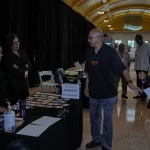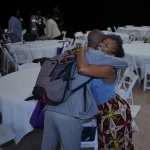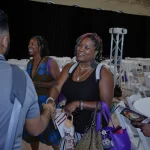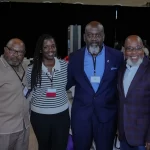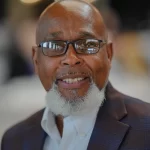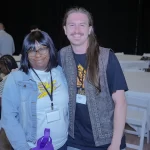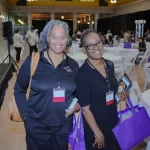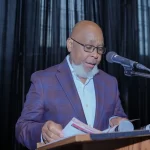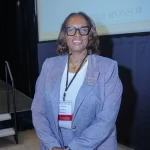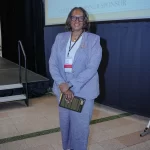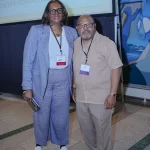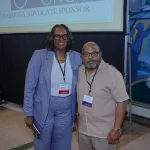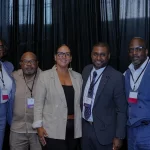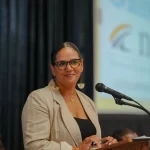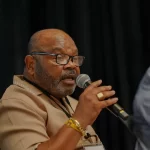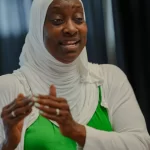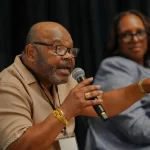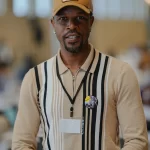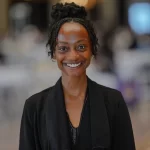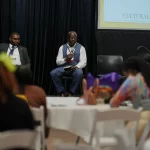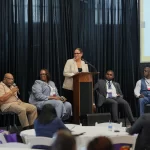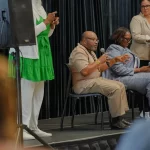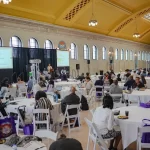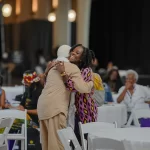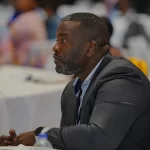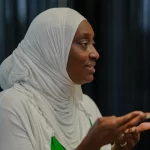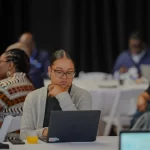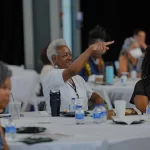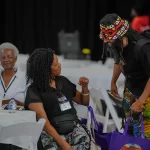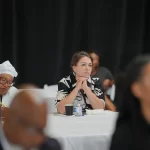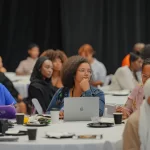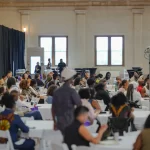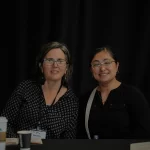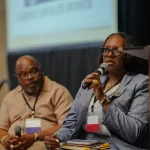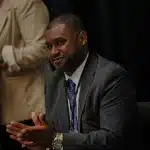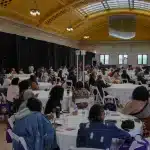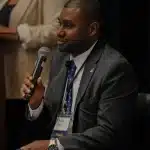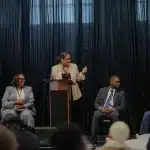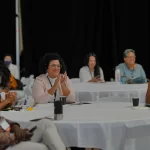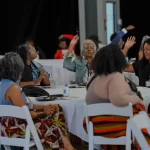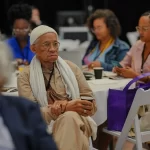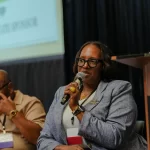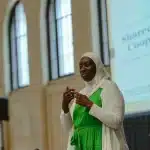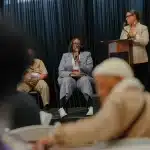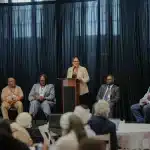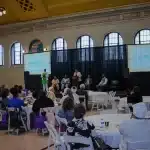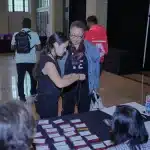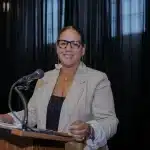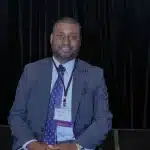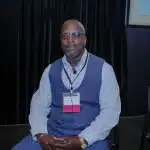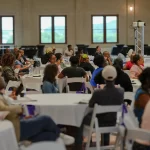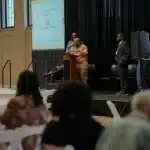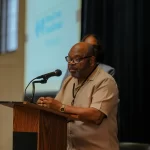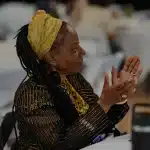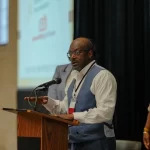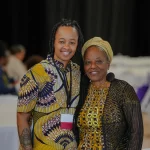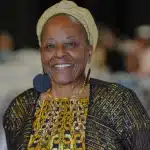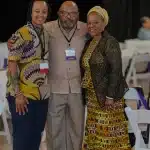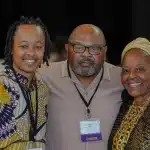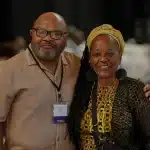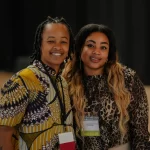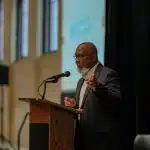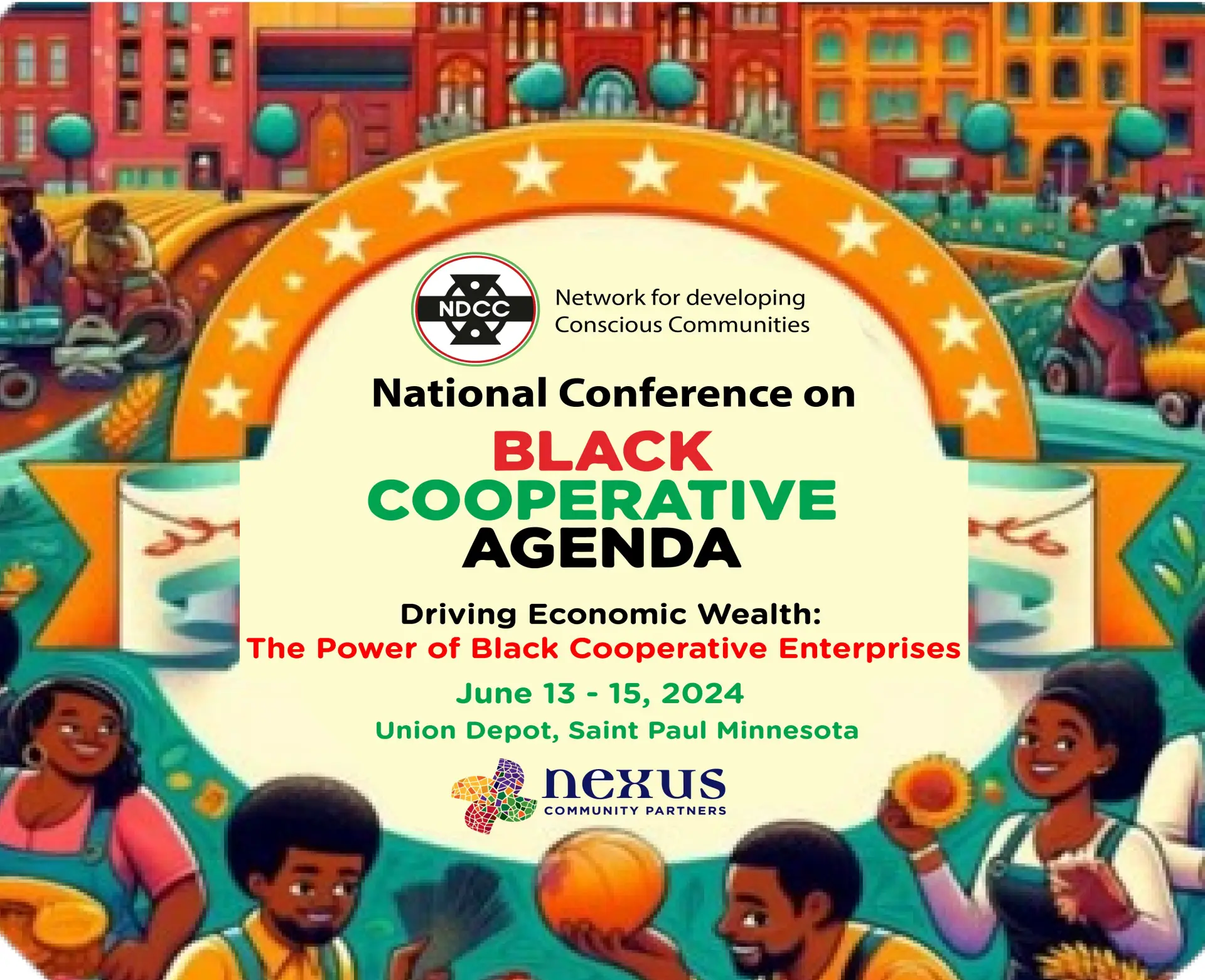
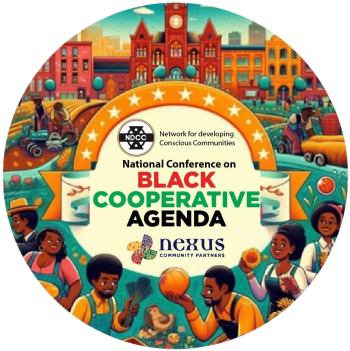
3rd Annual Conference | June 13-15, 2024
“Driving Economic Wealth: Power of Black Cooperative Enterprises”
National Conference on Black Cooperative Agenda
On behalf of the conference hosts Network for Developing Conscious Communities and Nexus Community Partners, we are proud to host such a diverse and inclusive audience attending this year’s National Conference on Black Cooperative Agenda. Our conference theme is Driving Economic Wealth: The Power of Black Cooperative Enterprises.
We have selected Saint Paul, Minnesota as our host city and this year’s conference dates are June 13-15, 2024, Our goal this year is to bring together diverse and influential Black cooperatives, economic practitioners and social entrepreneurs to foster collective dialogue, strengthen collaboration and develop actionable strategies to address systemic challenges that promote economic self-sufficiency and build sustainable economic futures for Black cooperatives within communities of color. Here are some key conference expectations:
Networking and Collaboration: Connect like minded individuals and organizations committed to fostering economic empowerment and economic justice.
Educational Opportunities: Engage participants in informative workshops and panel discussions that provide valuable insights into cooperative practices, business development and wealth building.
Showcasing Success Stories: Sharing organization’s achievements that lead to learning about collective knowledge and experience.
Policy Advocacy: Discussions on policy recommendations that support the development and growth of Black cooperatives at various levels of maturation.
Cultural Celebration: Immerse in the rich historical contributions of Black people connected to the cooperative movement through cultural events and performances.
Youth Engagement: Shape the future participation through engaging youth about cooperative enterprises.
Meet Conference Hosts
Network for Developing Conscious Communities, our mission is renew and inspire collective consciousness in community development through intentional engagement that builds sustainable power in Black communities”
Through collaborative efforts and partnerships, we work to address systemic issues and create lasting positive change in areas such as education, health, economic empowerment, and environmental sustainability.
Key initiatives and programs of NDCC include:
Community Development Projects: NDCC initiates and supports community development projects aimed at improving infrastructure, enhancing access to basic services, and promoting economic empowerment. These projects are designed to be inclusive, participatory, and sustainable, ensuring long-term benefits for residents.
Education and Awareness Campaigns: We believe that education is fundamental to creating informed and empowered communities. NDCC conducts education and awareness campaigns on a wide range of topics, including economic justice, environmental conservation, health and wellness, and community development practices.
Capacity Building Workshops: NDCC organizes capacity building webinars and training sessions to equip community members with the skills and knowledge needed to become agents of change in their communities. Topics covered include leadership development, reparations, health and wellproject management, and entrepreneurship.
Advocacy and Policy Reform: NDDC advocates for policies and practices that promote social equity, environmental sustainability, and community well-being. We engage with policymakers, government agencies, and other stakeholders to influence decision-making processes and advance the interests of marginalized communities.
Networking and Collaboration: NDCC serves as a platform for networking and collaboration among individuals, organizations, and institutions committed to community development and social change. We facilitate partnerships, exchange best practices, and amplify the voices of grassroots leaders and activists.
Nexus Community Partners’ mission is to build more engaged and powerful communities of color by supporting community-building initiatives that expand community wealth and foster social and human capital. We have distilled our nearly two decades’ worth of learning into three interconnected principles that we believe are key to supporting strong, equitable, and just communities: ownership, authorship, and leadership.
To meet our mission, we have identified a framework of three interconnected principles that guide our work:
Authorship: Engaging Community. All community members are engaged in and have authorship of their lives and their future.
Leadership: Cultivating Power. All community members are seen as leaders and are given opportunities to grow and to represent their communities in decision-making spaces.
Ownership: Building Community Wealth. All community members are afforded multiple access points to generate wealth and to own the wealth they generate.
Sessions
Scan QR code for PDF version

Wednesday, June 12
06:00 pm – 8:00 pm Welcome Reception Pimento Grille
The reception provides an opportunity for attendees to meet and mingle with each other, as well as with organizers, speakers, and other key figures.
Thursday, June 13
8:00 am – 5:00 pm
Registration
Waiting Room
8:00 am – 9:00 am
Continental Breakfast/ Networking
Waiting Room
9:05 am – 9:15 am
Meditation
Waiting Room
9:15 am – 10:15 am
Conference Opening
Waiting Room
Conference opening plenary session serves as the inaugural event of the conference, setting the tone and agenda for the days ahead. It brings together all attendees in a large gathering to officially kick off the proceedings.
The session offers greetings, expresses gratitude to sponsors, inspires participants, providing an overview of the conference theme, objectives, and highlights.
Opening session begins with a welcome address from conference co-hosts Ron Hantz, Executive Director Network for Developing Conscious Communities and Repa Mekha, Founder and CEO Nexus Community Partners, and Marcus Pope –
President of Youthprise, LaDonna Sanders Redmond
Morning Sessions
10:30 am – 12:00 pm
Session 1 Foundations for Success: Essential Strategies for New and Growing Cooperatives
Red Cap Room
Designed to provide attendees with practical tools, resources, and insights to strengthen the capacity and sustainability of cooperative enterprises. This session recognizes the importance of building organizational capacity to effectively navigate challenges, seize opportunities, and achieve long-term success in today’s dynamic business environment.
This session equips attendees with practical knowledge, skills, and resources to enhance the resilience, effectiveness, and sustainability of their cooperative enterprises. It empowers participants to take proactive steps towards building stronger, more resilient organizations that can thrive in today’s complex and competitive business environment.
Session 2 Navigating Structure & Governance: Transparent Decision-Making for Cooperatives
Veterans Gallery
This session offers attendees a comprehensive exploration of the principles, practices, and challenges associated with governance structures and decision-making processes within cooperative enterprises. This session recognizes the critical role that effective governance plays in ensuring the success, sustainability, and democratic functioning of cooperatives. This session equips attendees with the knowledge, skills, and insights needed to effectively lead, govern, and participate in cooperative enterprises. It empowers participants to contribute to the democratic governance and long-term success of their cooperatives, fostering a culture of transparency, accountability, and member participation.
Session 3 Employee Ownership and Empowerment: Fostering a Culture of Ownership
Gateway Conference Room
Session delves into the principles, benefits, and strategies of fostering a culture of ownership and empowerment within cooperative enterprises. Participants gain insights into the various models of employee ownership, including worker cooperatives, employee stock ownership plans (ESOPs), and other forms of employee ownership structures. Emphasis is placed on the principles of democratic control, shared decision-making, and economic participation among employees.
Session 4 Black Cooperatives: Expressions of Cultural and Spiritual Dimensions
Riverview Conference Room
The session explores strategies for preserving and transmitting cultural wisdom, knowledge, and traditions within Black cooperative communities. Participants learn about efforts to document oral histories, archive cultural artifacts, and pass down ancestral knowledge to future generations to ensure the continuity and vitality of Black cooperative movements.
This includes reflections on the teachings of liberation theology, Black spirituality, and other spiritual traditions that emphasize justice, equity, and solidarity. Attendees engage in discussions about the spiritual dimensions of Black cooperative movements, including the role of faith-based organizations, spiritual leaders, and sacred practices in inspiring cooperative action and social change.
12:15 pm – 1:15 pm
Lunch
Towards Equity and Justice: Exploring the Imperative of Reparations
Waiting Room
Join us in this thought provoking conversation as we confront the legacy of historical injustices and envision a future grounded in dignity, equality, and restitution for all. Participants will engage in a dynamic discussion on the various forms that reparations can take, including financial compensation, land restitution, educational initiatives, and systemic reforms.
Participants will explore the historical injustices such as slavery, colonialism, and systemic racism to present-day disparities in wealth, education, and opportunity, the need for reparative measures has gained increasing attention in the global discourse on human rights and social justice.
Afternoon Sessions
1:30 pm – 3:00 pm
Session 5 Planning Cooperative Youth Projects: Reflection and Action Planning
Red Cap Room
This skill-building workshop helps youth participants to develop their knowledge and abilities needed to start and sustain cooperative enterprises. Workshops cover topics such as financial management, business planning, marketing, leadership development, and conflict resolution, providing youth with practical tools and strategies for success.
Participants have the opportunity to brainstorm and plan cooperative projects or initiatives that embody cooperative principles and address issues or interests relevant to their lives and communities. The session concludes with reflection and action planning activities to help participants process their learning experiences and identify concrete steps for applying the cooperative principles into their daily interactions and take action to create positive change in their communities.
Session 6 Legal Frameworks: Navigating Legality of Forming a Cooperative
Veterans Gallery
The cooperative sector holds the possibility of transformative power in our communities and for the economic liberation needed. Cooperatives are historic organizations that shape the economy. Cooperative legal expertise is essential for compliance but also for the creation, growth, and sustainability of socially and economically resilient entities. This session will give insight into the legal frameworks needed for cooperative development. It will provide expertise from cooperative attorneys and the resources necessary when developing cooperatives.
Session 7 Navigating Best Practices and Challenges: Promoting Partnerships for Cooperative Sustainability and Expansion
Gateway Conference Room
Participants are introduced to the concept of innovation hubs as dynamic spaces that bring together diverse stakeholders, including entrepreneurs, innovators, educators, and policymakers, to collaborate on solving local challenges and driving economic development.
Attendees learn about the role of innovation hubs as drivers of economic development and job creation within communities. Discussions may cover topics such as fostering entrepreneurship, supporting small businesses, attracting investment, and building innovation ecosystems.
Session 8 Fostering Creativity: Artists Cooperative Movements
Riverview Conference Room
Artist cooperative movements and organizing refer to the collective efforts of artists to come together and create structures that support their shared interests, goals, and values. These movements often arise in response to challenges faced by artists, such as economic instability, lack of resources, or limited opportunities for exposure and recognition. By forming artist cooperatives and collectives, artists can pool their resources, skills, and networks to support each other and promote their work more effectively.
3:30 p.m. – 6:00 p.m. Networking Reception Union Depot
The reception provides an opportunity for attendees to meet and mingle with each
other, as well as with organizers, speakers, and other key figures.
Friday, June 14
8:00 am – 5:00 pm
Registration
Waiting Room
8:00 am – 9:00 am
Continental Breakfast
Waiting Room
9:05 am – 9:15 am
Meditation
Waiting Room
9:15 am – 10:15 am
Keynote Address
Waiting Room
As the esteemed Mayor of Saint Paul Minnesota, Mayor Melvin Carter brings with him a wealth of experience, leadership, and vision for the future of the St Paul community. He will cover a range of topics relevant to the conference cooperative theme, offering insights, perspectives, and actionable strategies for addressing key challenges and opportunities facing the city.
Mayor Carter’s keynote address will include reflections on his administration’s
accomplishments, initiatives, and priorities for advancing equity, inclusion, and prosperity in our community. He may share compelling stories and examples of innovative approaches to addressing pressing issues such as economic development, social justice, public safety, and environmental sustainability.
Morning Sessions
10:30 am – 12:00 pm
Session 9 Policy Advocacy: Empowering Cooperative Growth, Sustainability, and Social Impact
Red Cap Room
Session offers a comprehensive exploration of the principles, strategies, and best practices for fostering cooperative enterprises rooted in local communities. This session is designed to empower attendees with the knowledge and tools needed to initiate, nurture, and sustain cooperative ventures that address community needs and promote economic democracy and social justice.
Participants are introduced to the cooperative principles and values that underpin community-based cooperative development, including voluntary participation, democratic control, member economic participation, autonomy, and concern for community. Emphasis is placed on understanding how these principles guide cooperative enterprises in serving community interests and needs.
Session 10 Solidarity Economies: Building Intergenerational Community Power
Veterans Gallery
The movement for solidarity economies continues to grow around the country as communities seek alternative methods to return wealth to the community and build
grassroots power movements that are for us and by us. In this session, participants will explore the definition of solidarity economies and will gain insights into the diverse range of initiatives and strategies such as cooperatives, community-owned enterprises, alternative currencies, and mutual aid networks
Participants will learn about innovative approaches to building solidarity economies that prioritize the needs and aspirations of marginalized communities,
promote sustainable livelihoods, and strengthen local resilience in the face of
global challenges.
Session 11 Empowerment for Black Cooperatives: Managing Resources for Prosperity
Gateway Conference Room
Session is dedicated to equipping attendees with the knowledge, skills, and resources needed to foster financial well-being and economic empowerment within cooperative communities. The session examines the role of entrepreneurship and business development in achieving economic empowerment. Participants learn about starting and growing a business, accessing financing and resources, and navigating the challenges and opportunities of entrepreneurship.
Session 12 Innovative Models and Industries: Navigating Entry and Building Partnerships for Black Food, Retail, Agricultural, and Energy Cooperatives
RedCap Room
This session empowers participants to integrate sustainability into all aspects of cooperative operations, from governance and decision-making to product development and community engagement. It equips attendees with the knowledge, skills, and inspiration needed to build resilient, responsible, and future-proof cooperative enterprises that contribute positively to people, planet, and prosperity.
12:15 pm – 1:15 pm Lunch
Empowering Returning Citizens for Successful Reintegration
Waiting Room
This cooperative session will focus on discussing challenges faced by individuals returning from incarceration, exploring strategies for successful reintegration, and highlighting initiatives that support their transition back into society. The criminal justice system has long played a role in racism, exploitation, and dehumanization, which impacts Black people at disproportionate rates. Through the lens of previously incarcerated individuals, we will explore the intersectionality of racism and exploitation and offer ways to support formerly incarcerated people through cooperative economics and solidarity economies.
Afternoon Sessions
1:30 pm – 3:00 pm
Session 13 Owning The Block: Collective Ownership Through Real Estate and Investment Cooperatives
Red Cap Room
There is power in collective and intergenerational ownership models. Reimagined, this ownership model allows for equitable economic development stewarded by community members. Control over property ownership has been used as a tool to oppress, take away access, and often disrupt families and communities over time. This session will explore the different avenues of collective ownership of housing cooperatives, permanent real estate cooperatives, land trusts, commercial land trusts, and investment cooperatives that work to build just, self-determined, and regenerative local communities.
Session 14 Building Community Wealth Through Cooperative Ownership
Veterans Gallery
Session offers a comprehensive exploration of innovative approaches and initiatives aimed at building economic resilience, promoting shared prosperity, and fostering inclusive development within communities. This session is designed to empower attendees with the knowledge, tools, and inspiration needed to advance community wealth-building strategies through cooperative enterprises, asset ownership, and collaborative economic development.
Participants are introduced to the concept of community wealth building and its principles, including asset ownership, local economic democracy, equitable development, and social justice. Emphasis is placed on understanding how community wealth-building strategies differ from traditional economic development approaches and their potential to create lasting, inclusive prosperity.
Session 15 Empowering Black Communities: Black-Led Social Impact Funding Initiatives
Gateway Room
This session will explore the importance of supporting Black-led initiatives in social impact funding, highlighting successful models from different regions, challenges, and opportunities for advancing equity and justice in funding allocation. Panelists will discuss how cooperatives can leverage investment strategies to create positive social and economic impact.
Saturday, June 15
8:00 am – 9:00 am
Continental Breakfast
Red Cap Room
9:00 am – 9:15 am
Meditation
Red Cap Room
9:15 am – 10:15 am
Conference Closing: Ron Hantz, Executive Director
Network for Developing Conscious Communities and Repa Mekha, Founder and
CEO Nexus Community Partner, and Marcus Pollack President Youthprise
Voice of Culture: Kenna Cottman, Drummer
Spoken Word: Trish
Red Cap Room
Morning Sessions
10:30 am – 12:00 pm
Session 16 Collaborative Connections Panel: Breaking Silos, Building Bridges
Veterans Room
Provides a deep exploration of the role that cooperative enterprises play as anchor
institutions within Black communities. Anchored in principles of community
engagement, economic democracy, and social responsibility, this session aims to showcase the transformative potential of cooperatives in driving cooperative initiatives in affordable housing, community land trusts, renewable energy, and other sectors that contribute to neighborhood stabilization, social cohesion, and quality of life improvements.
This session explores the economic impact of cooperatives as anchor institutions, including their contributions to job creation, wealth generation, and local economic development. Participants learn about strategies for strengthening local economies, promoting sustainability, and fostering economic resilience through cooperative purchasing and sourcing practices.
Session 17 Securing Growth Capital: Access to Funding for Black Cooperatives
Gateway Room
Provides a comprehensive examination of the challenges and opportunities
cooperative enterprises face in securing loans, lines of credit, and equity investments, as well as alternative sources such as grants, crowdfunding, impact investing, and community investment funds.
This session is designed to empower attendees with the knowledge, tools, and
strategies needed to navigate the complex landscape of capital acquisition and effectively finance cooperative growth and development. Emphasis is placed on the diverse range of capital needs, including startup capital, working capital, expansion capital, and capital for innovation and technology adoption.
12:15 pm – 1:30 pm Lunch
“Empowering Black Cooperatives: National
Association Black Cooperator’s Impact, Vision, and Community Engagement”
Red Cap Room
The National Association of Black Cooperators is dedicated to promoting the
regenerative economic well-being of Black Cooperatives while nurturing quality
cultural leadership and excellence. Through our innovative approach to business development, cultural advocacy, conscious knowledge transfer, and community engagement, we strive to uplift and empower Black communities across the nation.
Join us for an insightful panel discussion featuring members of the National
Association of Black Cooperators (NABC), as we reflect on our achievements, outline our vision for the future, and explore ways to engage with our mission.
This panel discussion will serve as a platform for dialogue, inspiration, and
collaboration as we continue to advance the mission of NABC. Join us in building a more resilient, equitable, and vibrant future for Black Cooperatives and the
communities they serve. This panel discussion will serve as a platform for
dialogue, inspiration, and collaboration as we continue to advance the mission of NABC. Join us in building a more resilient, equitable, and vibrant future for Black
Cooperatives and the communities they serve.
Afternoon Session
1:45 pm – 3:00 pm
Session 19 Harnessing Technology for Success: Digital Solutions for Black Cooperatives
Gateway Conference Room
Participants are introduced to the concept of digital transformation and its significance in the context of cooperative enterprises. Emphasis is placed on how digital technologies, such as cloud computing, and artificial intelligence, are revolutionizing cooperative operations, service delivery, and member experiences.
Attendees learn about the role of e-commerce and online marketplaces in
expanding market reach, diversifying revenue streams, and connecting cooperative products and services with consumers. Participants learn about the opportunities and challenges of selling cooperatively produced goods and services online and strategies for optimizing online sales channels.
Session 20 Navigating Best Practices and Challenges: Sustainable Cooperative
Food Sourcing and Supply Chains
Veterans Room
This session provides a comprehensive exploration of strategies and best practices for promoting sustainability within cooperative food sourcing and supply chains.
This session recognizes the critical role that food cooperatives play in fostering environmental stewardship, supporting local economies, and promoting ethical
sourcing practices. Empowers participants to integrate sustainability principles into all aspects of food sourcing and supply chain management. It equips attendees with the knowledge, skills, and resources needed to build resilient, responsible, and sustainable food systems that benefit producers, consumers, and the planet.
1:45 pm – 3:00 pm
Tour George Floyd Square
Visiting George Floyd Square is a deeply moving and thought-provoking experience that leaves a lasting impact on all who pay their respects at this historic site. Situated in Minneapolis, Minnesota, at the intersection of 38th Street and Chicago Avenue, the plaza serves as a symbol of remembrance, resilience, and the ongoing struggle for racial justice.
Approaching George Floyd Plaza, one immediately senses the solemn atmosphere permeating the space. The intersection, once an ordinary city block, has been transformed into a sacred ground, adorned with vibrant murals, colorful artwork, and poignant tributes honoring the life of George Floyd and countless others who have lost their lives to police brutality and racial violence.
Speakers
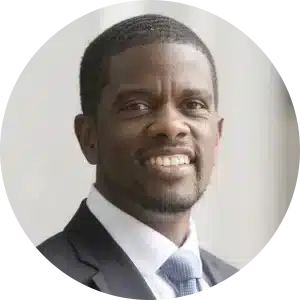
Keynote Speaker, Mayor Melvin Carter,
City of Saint Paul, Minnesota
Melvin Carter is the 46th mayor of the City of Saint Paul, Minnesota’s Capital City. A fourth-generation Saint Paul resident, Mayor Carter leads with an unapologetic equity agenda. Since taking office in 2018, his accomplishments include raising the city’s minimum wage; tripling free program in rec centers; eliminating late fines in public libraries; reestablishing an Affordable Housing Trust Fund; expanding immigrant & refugee support resources; and launching an Office of Financial Empowerment.
One signature initiative is CollegeBound Saint Paul, Mayor Carter’s plan to start every child born in the city with a $50 College Savings Account, starting January 1, 2020.
Passionate about helping others engage in civic processes, Mayor Carter has trained progressive activists and candidates in over 30 states, and commonly recites his administration’s mantra: “Building a city that works for us all means we all must do the work.”
Prior to his election in 2017, Mayor Carter has served as a Saint Paul City Council Member; Founding Board Chair of the Saint Paul Promise Neighborhood; Director of the Minnesota Office of Early Learning; and Executive Director of the Minnesota Children’s Cabinet.
A proud graduate of the Saint Paul public schools, Mayor Carter holds a Bachelor’s Degree in business administration from Florida A&M University and a Master of Public Policy from the Humphrey School of Public Affairs at the University of Minnesota. He resides in Saint Paul with his wife, Dr. Sakeena Futrell-Carter, and their children.

Alan Singer,
Healthy Food Financing Loan Office, LEAF
My present position is as a healthy food financing loan officer with the Local Enterprise Assistance Fund (LEAF) located out of Boston, MA (www.leaffund.org). LEAF is a CDFI and a national lender to cooperatives.
I share a deep belief that the commitment to provide for the greater common good is a value that can build bridges across the perceived divides including race, social class, gender identity and religious beliefs.
The other passion I have is for community access to healthy food to be both a catalyst for positive social change and a commonality from which All can benefit.
Over the years I have supported the groundwork development of farmers markets, community gardens, farms, food cooperatives, worker owned cooperatives and other community based businesses that share a common interest of benefiting the community.
I believe that, when given the opportunity to have a shared common vision, “ordinary” people can work together to create greater community wealth, enhanced opportunity and empowerment.
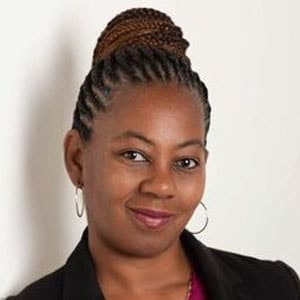
Alicia Jones McLeod,
Founder, Black Leadership Institute
For over 20 years, Alicia has supported and advocated for marginalized communities in various roles. Alicia has worked with businesses, government agencies, nonprofit organizations, and corporations to support and promote communities of color through training, program development, and leadership support.
She is the founder of the Black Leadership Institute (www.black-leaders.org) which helps organizations develop, support, and promote equitable and inclusive leadership strategies centering on people, programs, and policy.
She was the visionary and founder behind forming the Maryland Black Chamber of Commerce. She grew the chamber by offering programs such as the Black Women’s Leadership Roundtable, a groundbreaking accountability and training program for Black women business owners in Maryland.
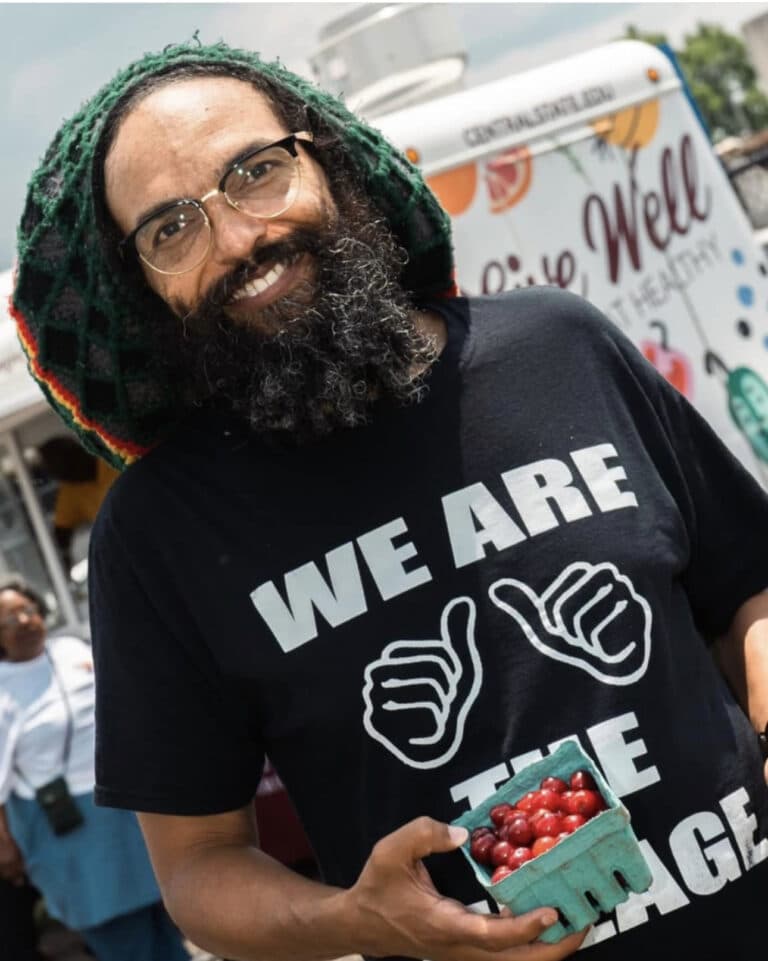
Amaha Sellassie,
Director, Center for Applied Issues, Sinclair Community College
Amaha Sellassie is an Afrofuturist, peace builder, social healer, freedom fighter, network weaver, student of cooperation and lover of humanity. Amaha is a Nation Builder in the Africana Village under the Dayton Africana Elders Council. He’s also an Associate Professor of Sociology and Director of Center for Applied Social Issues at Sinclair Community College in Dayton Ohio.
Amaha is a practitioner scholar and participatory action researcher dedicated towards building bridges of trust, healing historical wounds, and harnessing the unique gifts and talents of every human being as we press towards a just and equitable society. He truly understands the power of local work to transform global experiences by birthing examples of what is possible.
Amaha’s work in the community supported him receiving the J.M. Kaplan foundations National Innovation Prize fellowship to continue his work emerging a cooperative economy rooted in Love, interdependence and human dignity. Internationally, Amaha is a Caux Scholar fellow trained in the Swiss Alps in peacebuilding and healing historical wounds.
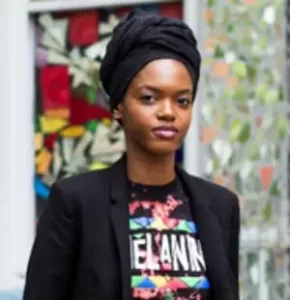
Amber Jones,
Founder, Namberjo Consulting
Amber N. Jones has over 12 years of professional experience working in the non-profit, finance, and real estate sectors, eight of which she has worked for mission-driven organizations based in Baltimore City. During that time, Amber has worked on real estate development projects in the Baltimore City metropolitan area including multi-family and single-family projects, new construction and rehabilitation, public and private financing, income-restricted and market-rate units, as well as subsidized housing with complex financing structures.
Prior to starting her small business and nonprofit consulting business, Namberjo Consulting, Amber worked at Enterprise Community Development and ReBuild Metro, Inc. as a development manager. In her most recent role as Chief of Housing & Economic Development with Park Heights Renaissance, she led programs and developed strategies to support housing, business, and workforce development.
Amber holds a Bachelor of Science degree in Real Estate and Economic Development from University of Baltimore and a certification in Rental Housing Development Finance (RHDFP) from Grow America (f/k/a National Development Council). Amber has participated in several fellowships and cohort-based educational programs, including: Baltimore City’s Planning Academy (2018), McKinsey’s Management Accelerator Program (2021), University of Baltimore’s Real Estate Fellows (2022), and Lift Economy’s Next Economy MBA Cohort XII (2024).
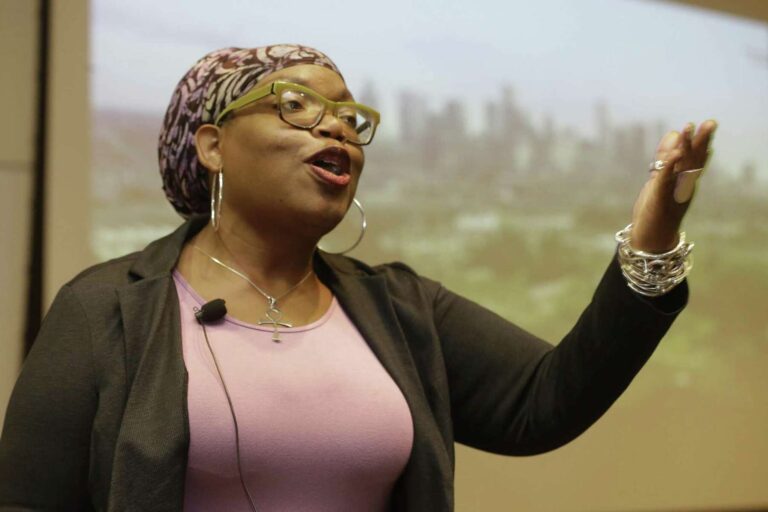
Assata Richards,
Board President, Community Care Cooperative
Assata Richards is the founding director of the Sankofa Research Institute (SRI), a nonprofit with a mission to “create knowledge to build community” through community-based participatory research. In addition, as a public sociologist, Assata serves as the Board President of the newly formed Houston Community Land Trust, the Third Ward Cooperative Community Builders, and the Emancipation Economic Development Council.
Most recently, she was elected as the founding board president of the Community Care Cooperative, Houston’s first home care agency owned by caregivers and the nation’s first community health workers’ cooperative business. Lastly, she is a founding member of We Are The Ones, a cooperative working to build a “Black Solidarity Economy,” enabling community members to define what success is for them and hold accountable institutions that claim to act on their behalf and develop economic enterprises that fairly compensate workers and build community wealth.
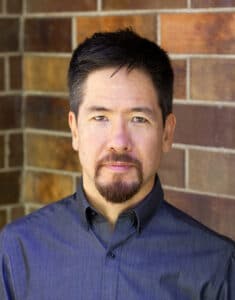
Benjamin Tsai,
Director, Shared Ownership Center, Nexus Community Partners
Benjamin Tsai is the Director of the Shared Ownership Center at Nexus (SOC@N). He has been a cooperative co-founder and developer since 2002, and has a depth of experience in co-op governance and business planning. Over the span of his career, he has helped numerous co-ops incorporate, launch and grow.
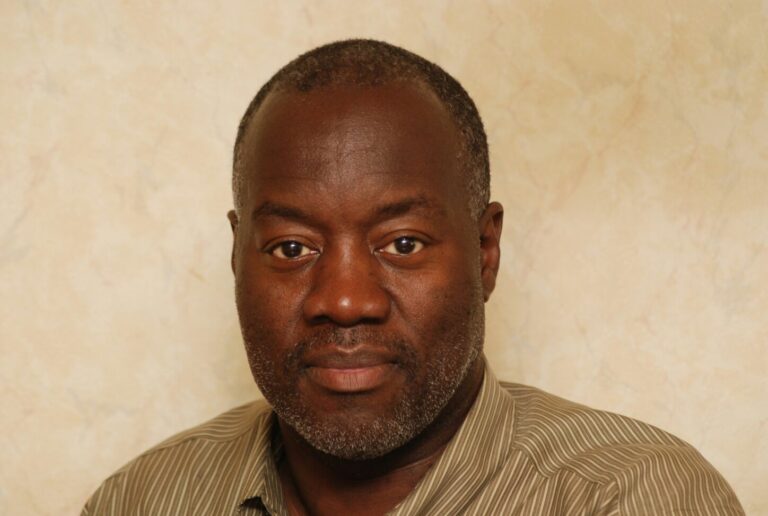
Cary Junior,
Founder & General Manager, SEMPA
Cary M. Junior, Founder and General Manager of SEMPA has championed issues promoting nutrition and entrepreneurship to empower the most vulnerable populations through economic development and food systems. He founded the former Royal Town Farmer’s Market and is a former Food Hub Development Specialist with the Michigan State University (MSU) Center for Regional Food Systems.
He served on the organizing committee of the Michigan Good Fund. He has also served on several Boards, including the Michigan Food and Farming Systems (MIFFS), the Detroit Community Wealth Fund (a cooperative startup fund), and more recently the USDA Minority Farmer and Ranchers Advisory Committee. As an engineer and economic development consultant, his education background includes degrees from Morehouse College (BS), The University of Michigan (MSE), and Dartmouth College Tuck School of Business (Exec.Ed).
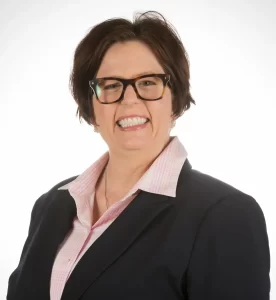
Christina Nicholson,
Cooperative Finance Developer, Nexus Community Partners
I have been working in cooperatives in Minnesota for 25 years in a wide range of roles, from front of house retail to construction to
cooperative consulting. In all of my endeavors, the thread has been working to connect communities to each other through common
cause. This has been framed for me as a shared economy that questions the normative culture of the unequal exploitation of labor.
In my role at Nexus, I serve as the Cooperative Finance Developer for the Worker Owner Initiative (WOI), which is part of Nexus’ Community Wealth Building Strategy. I support both start-ups and existing
businesses and understand the role that Worker Ownership can play in successful owner retirement strategies as well as improved workplace cultures for teams. With solid technical assistance and organizational support, Worker Owner Cooperatives can grow and perpetuate community wealth by expanding opportunities for local business ownership.
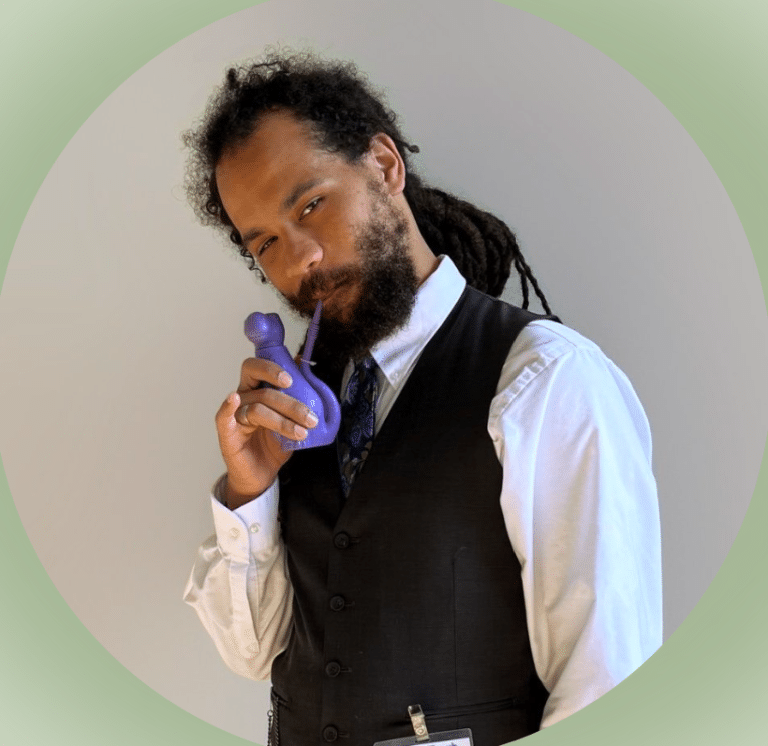
Damon Etawlyah,
Founder, Small Axe Coop
Damon, a descendant of stolen people, has lived on the stolen land of Teejop for his entire life. He attended Falk elementary school and graduated without distinction. He is deeply passionate about empowering the community he loves. He enjoys helping people to chase their dreams and live their lives free of state sponsored violence.
He approaches the world with curiosity and humor, his work with care and intention, and his people with love and support. He helped start Small Axe Coop with the intention of forging a healthier, more respectful workplace that would support a fully ethical and engaged practice of the law in alignment with his values.
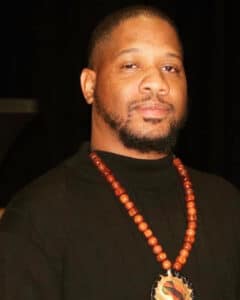
Dayon Love,
Director – Public Policy, Leaders Beautiful Struggle
Dayvon Love is a Baltimore-based political organizer and the Director of Public Policy for Leaders of a Beautiful Struggle (LBS), a grassroots think-tank that advances the public policy interests of Black people. In 2010, Love co-founded Leaders of a Beautiful Struggle (LBS), one of many organizations that successfully pressured the state of Maryland to disband its plans to build a juvenile jail downtown.
LBS has also led legislative efforts and advocacy efforts regarding criminal justice reform, youth and community empowerment. Dayvon is also the author of “Worse than Trump: The American Plantation”, a book that offers an important critique of the American political left and a political alternative to the exploitative relationship that Black people have to white institutions. Dayvon is also the author of “When Baltimore Awakes” which is a comprehensive critique of the way the white supremacy is embedded in the Human/Social Service Sector in Baltimore.
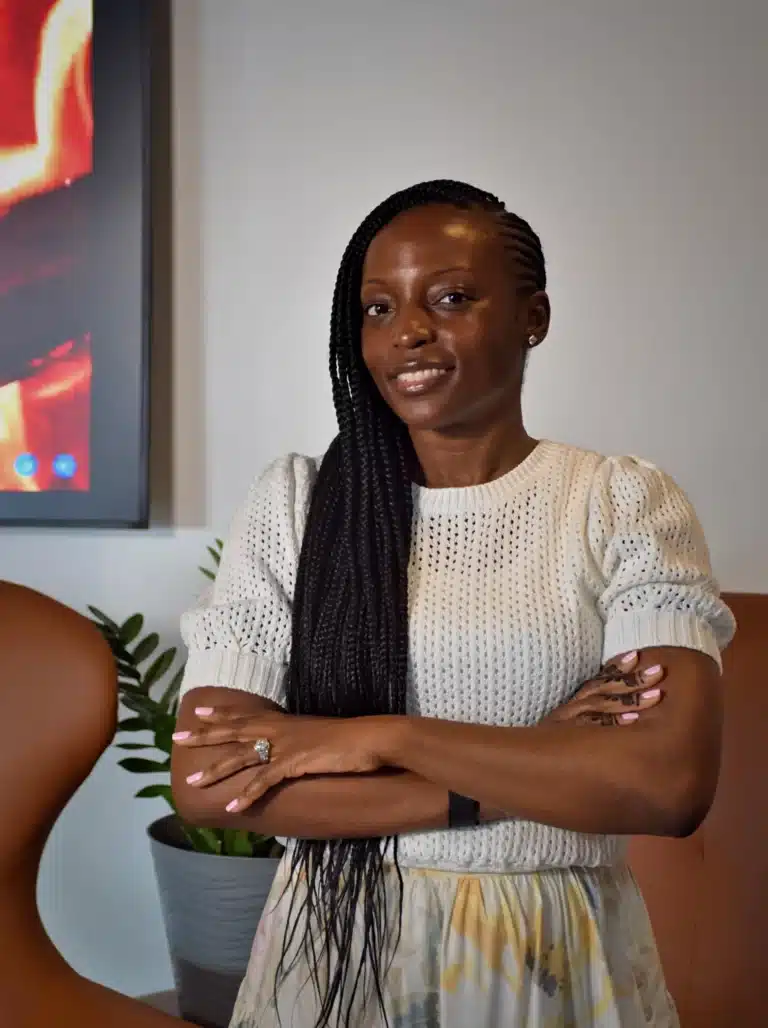
Denise Butler,
Associate Director, Economics and Community Development (ACER)
Denise Butler is the Associate Director and Director of Economic & Community Development at African Career, Education and Resource, Inc. (ACER). With more than 10 years of experience in the private and nonprofit sectors, she leads and oversees projects to meet the economic and community development needs for people of African heritage and BIPOC communities in the northwest suburbs of the Twin Cities.
Denise holds a Master of Science in organizational leadership and a Bachelor of Arts in Business Administration from the University of St. Thomas, and joined ACER in 2011 after six years in the private sector as a financial advisor and retail manager. In 2014, Denise ventured into entrepreneurship by establishing DHS Health Care, a consultancy focused on BIPOC women’s enterprises, entertainment, and real estate. She is also the co-owner of a used car business and a staffing agency helping to close the employment gap for people of color in Minnesota. In 2022, she received the Top Women in Finance award, in recognition of her hard work in business and community.
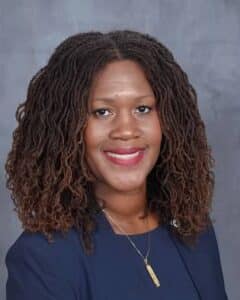
Ebony Woodruff,
Director, Southern University Law Center
Ebony Woodruff is the Director of the Southern University Law Center Agricultural Law Institute for Underserved and Underrepresented Communities. She is a first-generation attorney, legal entrepreneur, and a former Louisiana state representative. Ebony earned a Master of Laws in Agricultural and Food Law from the University of Arkansas School of Law, a Juris Doctor from the Southern University Law Center, and a Bachelor of Science in Business Administration from Louisiana State University. She is a 2023 Aspen Institute Food Leaders Fellow and serves on the Board of Directors for the New Orleans Food Policy Action Council.
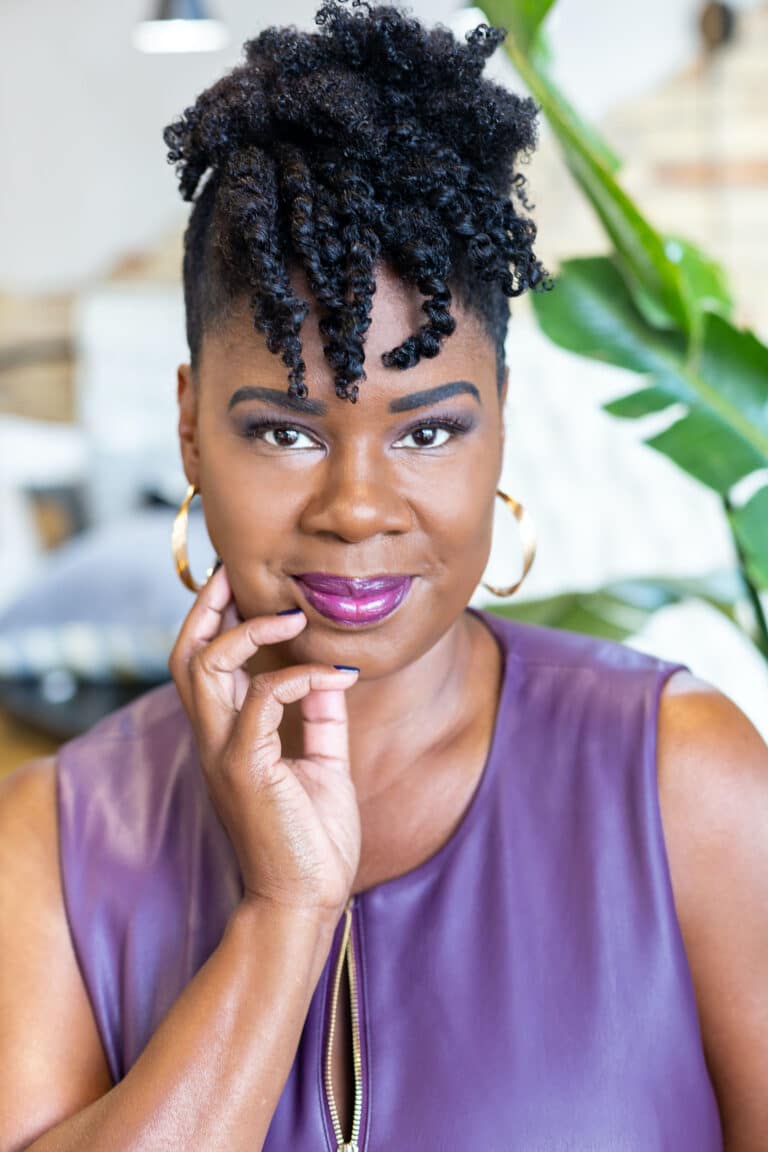
Elaine Rasmussen,
Founder and CEO, Connect Up Institute
Rasmussen is a powerhouse in the world of social finance, entrepreneurship, and impact investing. An unyielding advocate for economic justice, she is a beacon of inspiration for those who want to align their money with their values.
As an award-winning speaker, Elaine captivates
audiences worldwide, sharing her visionary insights on how to Do.Different. Better to transform communities and industries for the present and future.
Rasmussen’s personal mission is to move $50B to
Communities of Color. Her dedication to align profit and purpose has earned her accolades and respect in the
fields of social finance and impact investing.
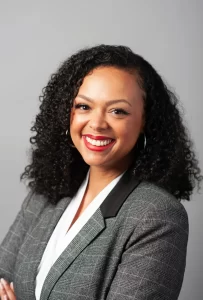
Electra Skrzydlewski,
Director of Shared Ownership, Metropolitan Consortium of Community Developers
Electra Skrzydlewski is the Director of Shared Ownership at the Metropolitan Consortium of Community Developers (MCCD) where she leads community wealth-building programs and lending initiatives. In this role, she works with BIPOC and low-wealth communities to achieve collective self-determination, advance racial justice and economic democracy, and foster sustainable development through owning and controlling the places where they live and labor.
Prior to joining MCCD, Electra was the Program Manager for the Cooperative Development Foundation supporting a portfolio of programs to empower the next generation of cooperators, improve social and economic conditions in historically underserved areas, and secure lasting change through shared ownership. With a career spanning over two decades across community organizing, financial services, government, non-profits, foundations, and economic development, Electra is a seasoned strategist adept at translating complex concepts into actionable plans. Her expertise lies in building consensus and implementing innovative strategies that address multifaceted challenges across diverse organizational contexts and mission areas.
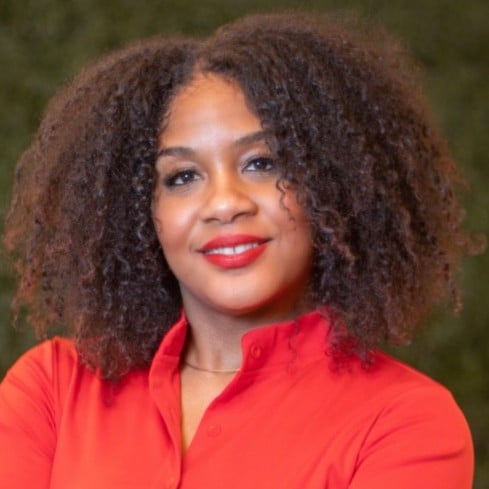
Elizabeth Carter,
Founder & Managing Attorney, Elizabeth L. Carter, LLC
Elizabeth is an investment crowdfunding attorney who represents investment companies, small businesses, nonprofits, cooperatives, and other social enterprises with the legal strategy and compliance of raising capital from their community and other investors. Her most recent work includes assisting a driver-owned ride-share cooperative with the legal compliance of its $2.5 million debt crowdfunding offer through Regulation Crowdfunding (Reg CF). Similarly, she assisted a number of cooperatives with their governing documents (by-laws, operating agreements, articles of incorporation) in order to prepare them for an upcoming capital raise from non-member investors. She also assisted a number of investment funds with the securities legal strategy and compliance of a SEC Rule 506(c) crowdfunding offer, including a cooperatively owned investment fund that offered $2 million in equity to accredited investors, as well as a community development financial institution that offered $1 million in slow equity to mission-aligned accredited investors. Elizabeth is passionate about the political economy, solidarity economy, restorative economics, and community development.

Gary W. Hampton,
Business Growth Development Consultant
Gary W. Hampton is a Business Growth Development Consultant who helps businesses and organizations to reach operational and capacity goals. Hampton previously served as Deputy Director of Small Business Development for the State of West Virginia and worked for 17 years as an Information Technology professional. After a successful career in IT and strategic development across different industry sectors (Technology, Financial, Government, Private, Non-profit, Retail, Education), Hampton now advises, trains and coaches businesses on strategic development and growth strategies to reach their organizational goals. He is also active in community-based cooperative economic development and a member owner of the Ajani Group Cooperative. Hampton is a passionate community supporter who enjoys coaching up the youth in his community through basketball and technology activities. Hampton received his B.A. from Marshall University in Management Information Systems. Mr. Hampton currently sits on the boards of Create WV, Compensation Committee and Association of Cooperative Educators, Vice Chair.
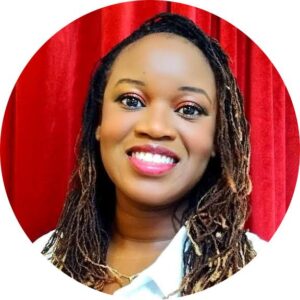
Ini Augustine,
Network Engineer, Social Innovator & Serial Entrepreneur
Ini Augustine is a network engineer, social innovator, and serial entrepreneur. Her social enterprise Technologist Computers, sells computers, IOT, and technical support to help fund their three community outreach programs, Project Nandi, Way of the Root Farm, & Joy on Film.
As a member of the Governor’s Task Force on Broadband, she continues to advocate for the internet for all Minnesotans. Ini is the founder of the Black Broadband summit, which aims to discuss shared experiences around lack of access, teach how the internet works, and create community led solutions to closing the digital divide.

Jacqueline Stevenson,
President, Counselors In The Community Association
Jacqueline Stevenson is an esteemed entrepreneur and strategic innovator with a rich history of driving impactful change in both for and not-for-profit business sectors, particularly in supporting small businesses and community development. With a background in Behavioral Science and Business Development, Jacqueline has honed her expertise over years of hands-on experience and academic study.
Jacqueline holds degrees from Purdue Global University and National University, where she acquired a deep understanding of business development and organizational psychology. She is also a proud member of esteemed organizations such as the National Society of Leadership Success, the Society of Industrial Organizational Psychology, and several Department of Commerce initiatives.
As the President of Counselors in the Community Association (CITCA) and the driving force behind CITCA Community Partners, she tirelessly works to uplift underserved communities and foster sustainable growth.
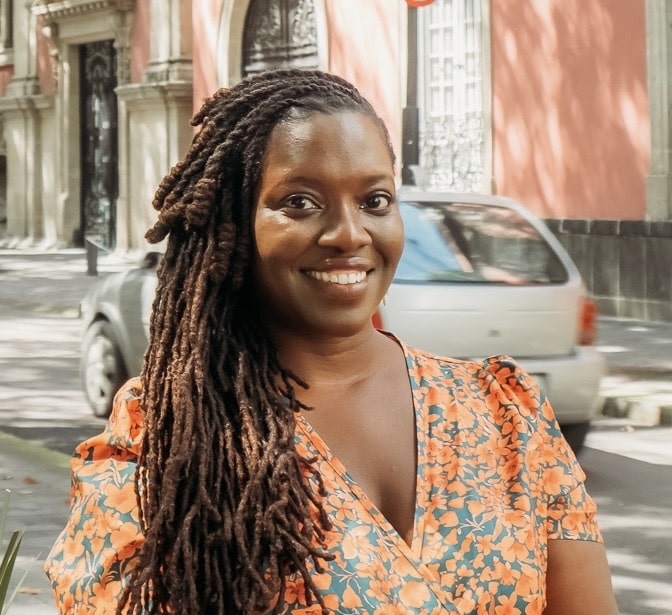
Jeniffer Bryant,
Program Manager, Project Equity
Jennifer has worked for several years to grow the employee ownership ecosystem in the Washington, DC area. She led the development of the Greater Washington Center for Employee Ownership and has provided technical assistance and support to employee-owned businesses at all stages of development.
As the Program Manager for the Black Employee Ownership Initiative at Project Equity she’s committed to working alongside local ecosystem partners to advance employee ownership as a wealth-building strategy for Black business owners and Black workers.
Jennifer is a Robert Wood Johnson Foundation Culture of Health Leader as well as a 2019 fellow of the Democracy at Work Institute and National League of Cities Shared Equity in Economic Development (SEED) Fellowship. She holds a BA from Howard University and a MA from St. John’s University.
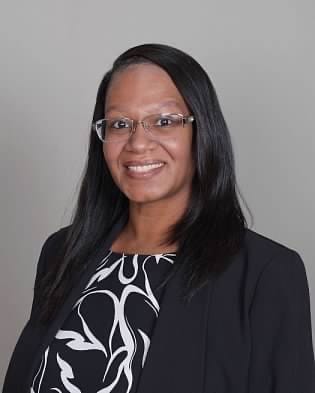
Jessica James,
Asst. Vice President, Associated Bank
Jessica James is a seasoned professional with over 20 years of experience in finance, homeownership, affordable housing, community and economic development. She is driven by a passion for dismantling systemic barriers, advancing racial equity, and economic justice using a collective lens.
Currently serving as AVP, Community Reinvestment Loan Advisor at Associated Bank, Jessica thrives on cultivating partnerships and addressing strategic financing needs. Additionally, she holds leadership positions in various organizations, including board roles at Network for Developing Conscious Communities (NDCC), NAREB TC, City of Lakes Community Land Trust and Rondo Community Land Trust, where she champions affordable homeownership and economic development initiatives.

Johan Matthews,
Community Engagement Facililator, Cooperative Fund Northeast
In this role, Johan cultivates regenerative relationships and co-designs strategies that facilitate the development of equitable co-op ecosystems across the northeast. He also provides culturally responsive technical assistance to ensure that communities traditionally excluded from economic investment can engage in cooperative enterprise.
Johan joined CFNE in 2021 after over a decade of collaborating with local leaders and institutions in emerging communities to design and implement equitable change strategies. He holds a B.A. in Philosophy from SUNY at Buffalo, a Certificate of Graduate Study in Nonprofit Leadership and Management from Rockefeller College, as well as an M.S. in Strategic Design and Management from The Parsons School of Design Strategies.
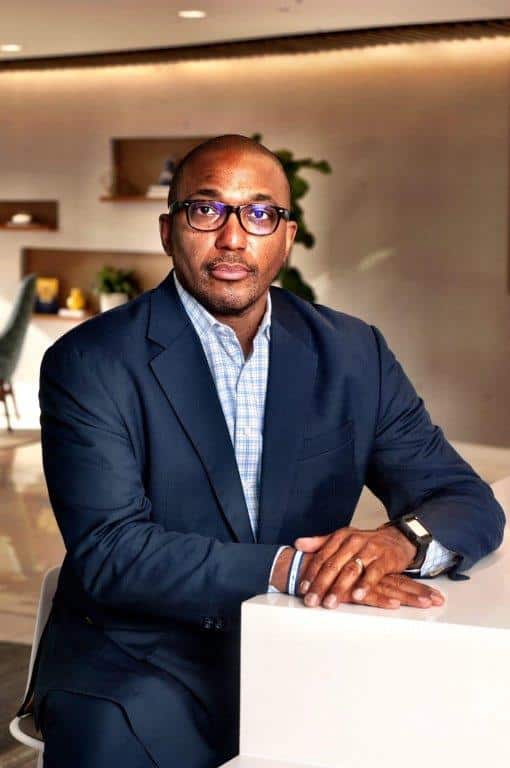
John Holdsclaw IV,
President & CEO, Rochdale Capital
John Holdsclaw IV serves as president and CEO of Rochdale Capital, an emerging national non-profit community development loan fund that promotes community ownership and cooperative principles. In a dual role, John also serves as executive vice president of strategic initiatives at the National Cooperative Bank (NCB), which is the founding and strategic partner of Rochdale Capital.
Mr. Holdsclaw currently serves on numerous boards and holds degrees from NC Agricultural and Technical State University and Southern New Hampshire University, a Stonier Graduate School of Banking Diploma, Wharton Leadership Certificate and Certificate in Diversity and Inclusion from Cornell University. In 2019, John received NCB’s Stanley W. Dreyer Spirit of Cooperation Award. John was named one of ImpactAlpha’s Agents of Impact for 2022, one of twelve who are breaking new ground, forcing hard conversations, and doing the hard work of driving positive social and environmental impact. In addition, John is an active member of Phi Beta Sigma Fraternity, Incorporated.
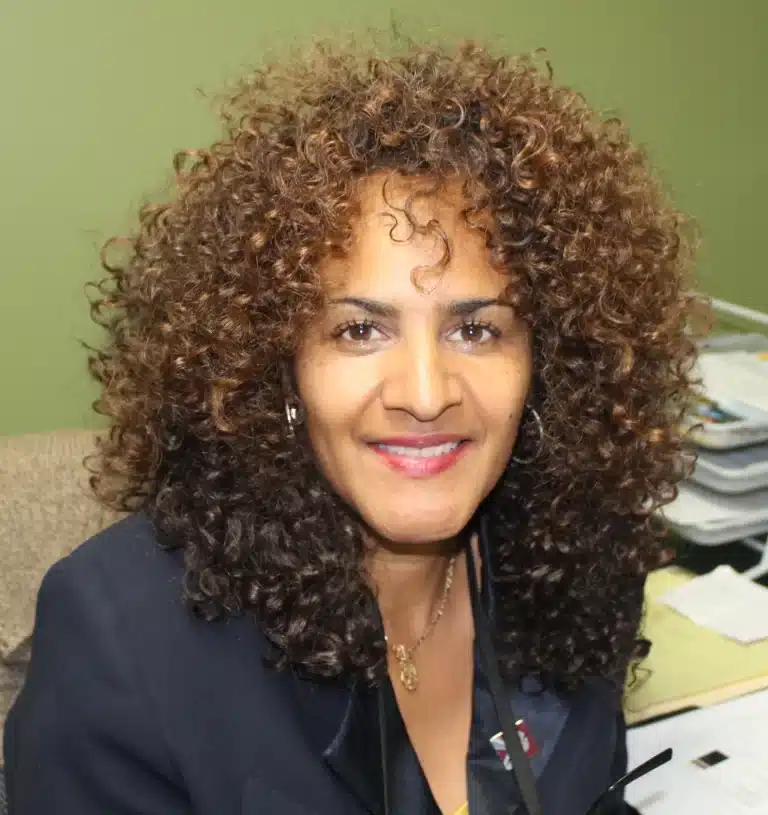
LA Simons,
President, Digico Global Business Solutions
Ahzjah Simons is known for her work in organizational leadership, co-op management, communications/marketing, and multimedia, in the cooperative, wellness, and personal development industries.
She is currently, Founder of International Co-op Media Group and Women In Cooperation, a partnership between Co-op Nation Network and Digico Creative as a digital media co-op incubation project.
She is also President of Digico Global Business Solutions LLC, a member of Columinate and supports the organization as Digital Innovation and New Media Strategist. She is also currently serving as the Interim Co-Director/Board member for Georgia Cooperative Development Center working to support the economic development of marginalized communities in an effort to create more equitable ecosystems throughout the state of Georgia for multi-sector cooperatives, bipoc and women-owned small businesses, non-profits, creatives, and solopreneurs.
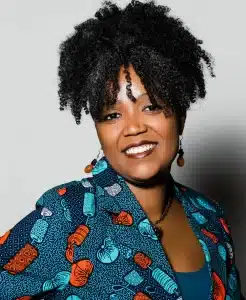
LaKeisha Wolf,
Executive Director, Ujamaa Collective
LaKeisha Wolf is co-founder and serves as executive director of non-profit Ujamaa Collective, a grassroots organization in Pittsburgh, PA that works to center Black/Africana people, particularly women, within a cooperative economics practice. Ujamaa provides a shared retail boutique for makers and artists based locally, nationally and globally to cooperatively market, sell and connect with conscientious consumers.
LaKeisha leads through the lens of creativity and community, working with Black artists and organizers to develop place-making strategies, models of equity for community resources, as well as local and global partnerships rooted in the values of fair trade entrepreneurship, mutual aid and wellness. Additionally, as a community cultural worker and teaching artist, LaKeisha provides support and workshop facilitation in the areas of culturally responsive arts and wellness practices and cooperative enterprise development. She serves on many advisory boards, including the board of directors for the Hill District Federal Credit Union, one of the remaining few Black-led and serving banking institutions. LaKeisha is also a co-founder of the emerging National Association of Black Cooperators.
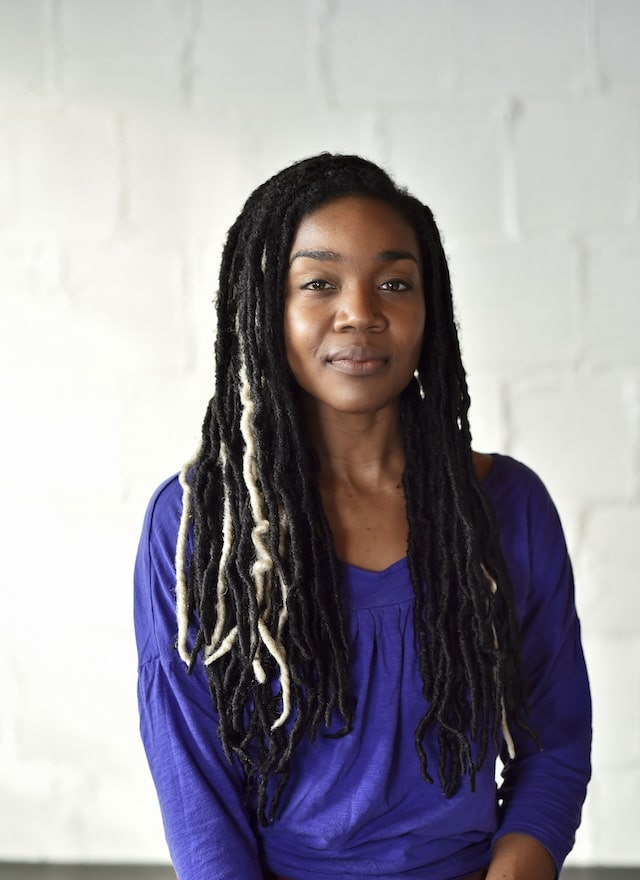
Leanna Browne,
Program Manager, Nexus Community Partners
Leanna is the Program Manager for the North Star Black Cooperative Fellowship (NSBCF) at Nexus Community Partners. She supports community wealth building initiatives that honor and reclaim the legacy of Black cooperative economics and invite alternate ways of being.
Leanna is excited to deepen her learning about cooperatives and support community wealth building in BIPOC communities, particularly those that are Black. Her background includes experience in a variety of settings such as the arts, direct service, youth work, and data collection in research and evaluation. Leanna is also a dancer, choreographer, and teaching artist with a passion for using dance to build community and promote social change. In 2022, she became a Certified Professional Teacher in Umfundalai (muh-foon-duh-luh), a contemporary African dance technique, which means “essence” or “essential” in Kiswahili. Leanna holds a Bachelor of Arts in Psychology and Special Major in Dance & Black Studies from Swarthmore College.

Lulete Mola,
Co-Founder, President Black Collective Foundation
Lulete Mola, is a 2023 Mpls/St.Paul Business Journal Women in Business honoree, change strategist and a leader with a proven track record of initiating and nurturing impactful initiatives and organizations. Lulete is the Co-Founder and President of the Black Collective Foundation MN, Minnesota’s first Black community foundation advancing the genius of Black-led change. She leads the Collective as it is building infrastructure, practicing creative and innovative resource disbursement, growing $50M in assets, and expanding Black philanthropic power to advance a new model of philanthropy.
Lulete recently completed her service on the Minnesota Council of Foundations Board of Directors and has been newly appointed to the VoteRunLead National Board. Lulete is the recipient of the 2020 SOAR fellowship with the Aspen Institute Forum on Women and Girls. In 2022, Lulete received The Facing Race Award for her work in challenging absent and harmful narratives on race, building solutions, and pushing for justice and equity. Lulete graduated summa cum laude from the University of Minnesota where she recently received the College of Liberal Arts (CLA) Emerging Alumni Award.

Mark Fick,
Senior Loan Officer, Shared Capital Cooperative
Mark Fick is the Senior Loan Officer with Shared Capital Cooperative where he works with the business development, loan underwriting and portfolio management functions of the organization. As a cooperatively owned loan fund, Shared Capital works to build economic democracy by providing financing to cooperative enterprises throughout the United States including consumer, worker, and producer owned cooperatives.
Prior to joining Shared Capital, Mark was the Director of Lending Operations with the Chicago Community Loan Fund where he was responsible for providing financing and technical assistance to affordable housing, social enterprises and community-based organizations in the Chicagoland area.
Over the past 30 years Mark has been an active leader with a variety of community-based and cooperative development organizations with a focus on building economic systems that are democratic and radically inclusive. This includes serving in volunteer, leadership and advisory roles with the Partnership in Property Commercial Land Trust, Black Lives Unitarian Universalism Housing Council, the US Federation of Worker Cooperatives, the Chicago Mutual Housing Network, NASCO Development Services, Organization of the Northeast, and the Northside Community Federal Credit Union.
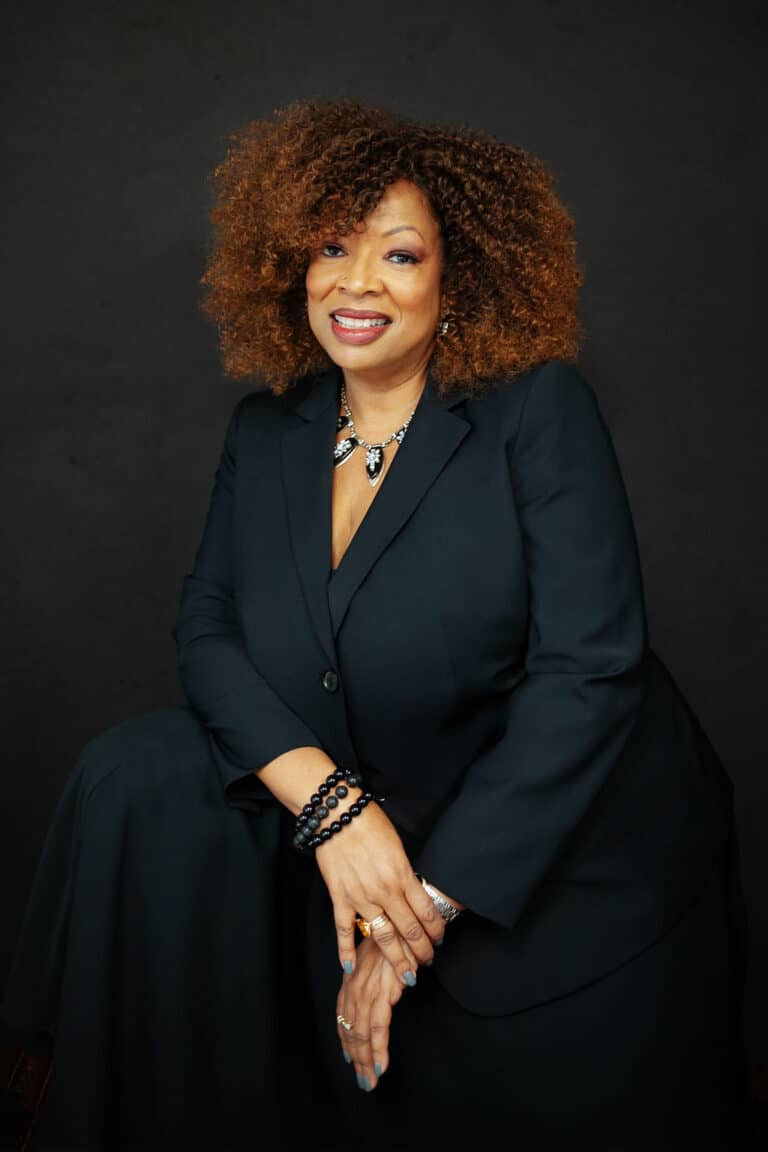
Maurissa Stone,
Founder and CEO, Iona Concepts
Maurissa Stone is the founder and Principle of Iona Concepts Inc. a boutique training and change-management consultancy; the Chief Equity Impact Analyst for Fight Blight Baltimore, an economic, environmental, and social justice platform; and the Director of Innovation for The Living Well (TLW) Center for Social and Economic Vibrancy. Stone celebrates 30 years of experience working with nonprofit organizations, government agencies (federal, state, and local), Universities and entities in the private sector.
As a social entrepreneur, Stone provides executive-level Race, Equity, Diversity and Inclusion (REDI) coaching, training, action research, and thought leadership to social impact entities. She currently facilitates organizational culture assessments and executive coaching using a Race, Equity, Diversity and Inclusion lens for community development corporations and government agencies which includes NeighborWorks America, Substance Abuse Mental Health Services Administration (SAMHSA), and the Equity Brain Trust to name a few. She is a master level facilitator and keynote speaker. Her authentic style of communication and liberatory practices supports the creation of brave and healing spaces for those who are facilitating anti-racist discussions.
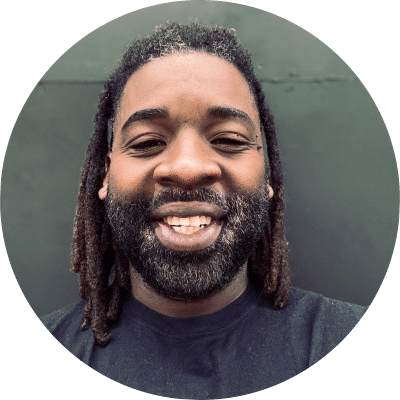
Rev Carl Johnson,
Lead Pastor Faith City Church
Rev. Carl Johnson moved to the Twin Cities in fall of 2016. Carl has a mission to abolish food insecurity in major cities starting with St. Paul believing that race and economic justice are tied to food. He is a pastor in the twin cities and formally appointed committee member in the City of St. Paul of Food and Nutrition. Carl’s extensive knowledge of black culture and structures of identities in the black community has propelled his work with racial injustice. Carl often engages in circles and individuals cross-culturally to see communities work in unity.
He built partnerships with the school and eventually Indigenous Roots Cultural Art Center. They began to partner when Rev. Johnson organization started their social good enterprise Storehouse Grocers. Storehouse Grocers is specific to Dayton’s Bluff and is placed on 7th Street East. If it is an affordable and accessible grocery store that has fair bargain prices under $5.00. The grocery store has become a neighborhood hub to feed and help families that are entrenched in food insecurity. They give out 1600 meals a month during covid.
Storehouse has been a work of collaboration and cooperation with the neighborhood. Storehouse houses a mural of the hope for black families to be food secure. They carry culturally specific products that make sense to the population of the neighborhood.
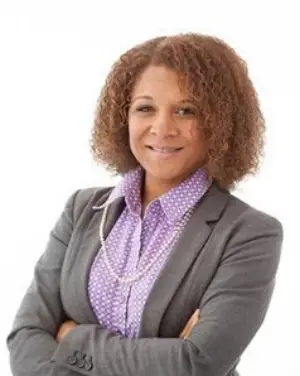
Mikeya Griffin,
Executive Director, Rondo Community Land Trust
Mikeya Griffin became Executive Director of the Rondo Community Land Trust in Fall 2021. In this role she oversees all facets of the organization, setting strategic direction to effectively meet mission, grow impact and realize a bold vision for the future.
Prior to joining Rondo Community Land Trust, Mikeya served as Executive Director of Minnesota’s largest homeowner association and only private city in the state of MN. During her five-year tenure, she successfully increased member participation, established strong governance, and streamlined operations.
Mikeya’s career spans the public, private and non-profit sectors, including in roles at HUD and Land Bank Twin Cities. Mikeya has more than 20 years of experience in organizational leadership, business development, affordable housing, and community development. In that time, she has created and championed many affordable housing and economic development initiatives centering BIPOC and low-wealth communities.

Mustafa Abdul-Salaam,
Founder & Facilitator, Ward 8 Community Economic Development
Mustafa Abdul-Salaam brings over 40 years of economic development and managerial experience to his consulting practice. His background before consultancy work was in both the not-for-profit and profit sectors as a hands-on administrator. His academic qualifications include a BA in Social Anthropology and an MS in Urban Management/Economic Development.
He is the founder and facilitator of the Ward 8 Community Economic Development planning process. The purpose of the process is to organize and mobilize the residents to create a community-driven strategic plan that will influence the short and long-term development of Ward 8.
Mustafa serves on the District of Columbia Advisory Neighborhood Commission, representing a Ward 8 neighborhood for the 2021-2022 term of office. Commissioners represent the interests of about 2,000 DC residents, offering recommendations to District government agencies on various issues.
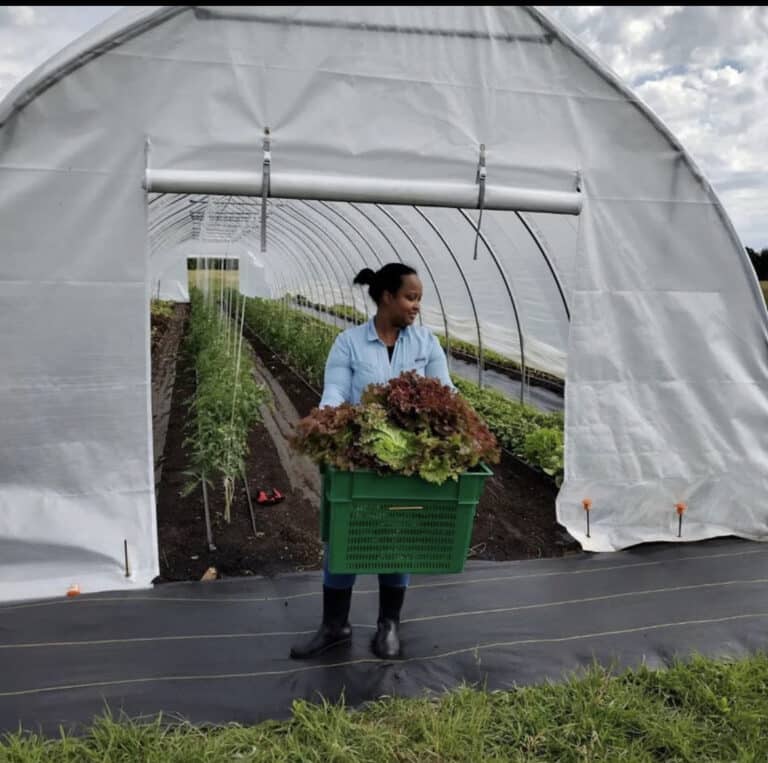
Naima,
Program Director, Somali American Farmer Association
Naima is a first-generation farmer, activist and educator committed to look after mother earth and community building. She is the Program Director at Somali American Farmers Association, where she supports the next Somali American farmers and the owner of Naima’s Farm LLC. Naima is passionate about organic farming and inspiring young people to become future farmers, specifically people from immigrant communities in Minnesota.
As director, Naima’s vision comes from creating access to Farmers’ Market to disadvantaged communities. Among other factors, lack of access hinders their ability to buy fresh fruits and vegetables locally. By addressing this disparity in accessing green space, Naima is able to help those facing food insecurity while continuing to educate immigrant communities providing nutrition education workshops at public forums about sustainable agricultural practices, organic farming techniques, and spreading awareness on healthy eating habits as well as the environmental, health impact in the community across the state of Minnesota.

Nonkululeko Shongwe,
Director – Community Wealth Building, Nexus Community Partners
Nonkululeko Shongwe, or Nkuli, is a facilitator and cooperative enthusiast. She works at Nexus Community Partners as the Community Wealth Building Director. She directs the North Star Black Cooperative, bringing Black-led cooperators and collectives together, grounding them in the history of Black cooperative economics. North Star sets space for our Black communities to reclaim the history and legacy of Black cooperative practices and use that wisdom to build on organizing efforts centered on our liberation. She serves as the vice chair for Taproot Investment Cooperative. Nkuli also serves on the City of St. Paul’s Human Rights and Equal Economic Opportunity Commission.

Omar Freilla,
Co-Founder, Steering Committee Member, Collective Diaspora
Omar Freilla is a cooperative development consultant and co-founder and steering committee member of Collective Diaspora, a support network for Black cooperatives and Black-led cooperative support organizations throughout the African diaspora. He is a serial trailblazer, social entrepreneur, and movement builder dedicated to community self-determination and regenerative economies. His work is grounded in his experience growing up in the South Bronx amid fights for community self-determination.
His years at the NYC Environmental Justice Alliance and Sustainable South Bronx led him to cooperatives as a tool for building economies that are just and regenerative. He founded Green Worker Cooperatives, created the first business accelerator for worker cooperatives in the US, and pioneered new approaches to cooperative development. He also co-founded local and national cooperative support organizations: US Federation of Worker Cooperatives; Democracy At Work Institute; and the NYC Network of Worker Cooperatives.
He also contributed to the establishment of the City of New York’s Worker Cooperative Business Development Initiative. He is an Adjunct Lecturer at the City College of New York, serves on the City of NY’s Environmental Justice Advisory Board, NY State’s Just Transition Working Group, and enjoys family time with his two children and partner at home in the Bronx.
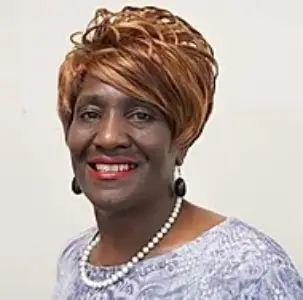
Pamela D James,
CEO, West Valley Farms and Camp Sites
Pamela James, is the CEO of West Valley Farms and Camp Sites, chair of the Good Food Buffalo Coalition leadership council, and on the advisory board of the Buffalo Food Equity Network. She is an active member of Black Farmers United New York State.
James is Life Source System (LSS) CEO and a native of Buffalo. LSS mission is to provide educational insight to individuals and inter-generational families in an effort to lead communities to healthy lifestyles.
She earned her bachelor’s degree at Buffalo State College in Criminal Justice. After graduating, James was awarded the prestigious HUD Scholarship from the University of Buffalo to attend the School of Architecture and Planning where she earned a master’s degree. She completed her PH.D course work all but the Doctoral Dissertation in American (Cultural) Studies.
She is a Veteran of the US Army. She is a Professor that teaches Social Sciences at Houghton University in Buffalo, New York.
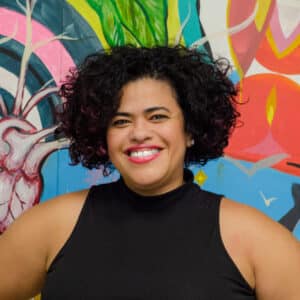
Patty Viafara,
Director – Worker Ownership Initiative, Nexus Community Partners
Patty has been working with small businesses and non-profits for over 14 years in various roles, primarily focused on the people side of operational change. She’s worked with over 30 companies at various stages in their journey to employee ownership and truly takes pride and joy in helping groups envision and implement their future.
She was born in Colombia and has over 40 first cousins. Patty draws from my personal experience growing up in Miami, Florida, where 54% of the population is foreign-born, and has learned that she can find common ground with just about anyone. In her free time, she enjoy paddleboarding, hiking, hand-building pottery, singing, dancing and spending time with her family and dog Stella.
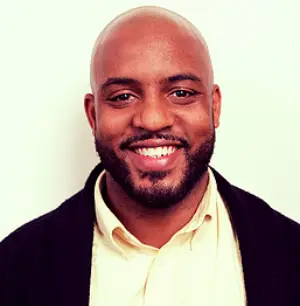
Phil Waller,
Entrepreneur and Social Innovator
Phil Waller is driven by the belief that entrepreneurship can serve as a catalyst for individual transformation and community empowerment. With over 13 years of experience, he has dedicated his career to leveraging design thinking and asset-based approaches to foster entrepreneurship and social innovation within communities.
During his tenure as an entrepreneur support program director at SecondMuse, Phil honed his expertise in participatory research and design, while also gaining valuable experience in ecosystem development and capital innovation. His leadership in community and program design extended to diverse regions, including Philadelphia and Battle Creek, MI. Additionally, he contributed to Futureworks NYC, the nation’s largest public incubator for hardware and advanced manufacturing startups.
Phil holds a Master of Public Administration from the University of Pennsylvania, where he focused on entrepreneurship and economic growth. He earned his Bachelor of Arts in Economics and Psychology from Kenyon College in Gambier, OH.
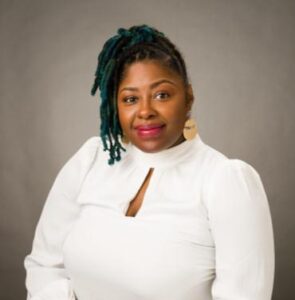
Robin Wonsley,
Minneapolis Ward 2 City Council Member
Robin grew up in the Southside of Chicago and attended Carleton College, then completed a Thomas J. Watson Fellowship where she researched effective reintegration and reentry programs and policies for recently released women. Robin moved to Minneapolis in 2014. She earned a Mini MBA in Nonprofit Management from St. Thomas University in 2015. In 2018, Robin began her PhD program in Gender, Women, and Sexuality Studies at the University of Minnesota.
Robin has been involved in racial and economic justice organizing since the Minneapolis Police Department’s murder of Jamar Clark in 2015. She has been a leader in a broad array of grassroots campaigns including efforts to increase community oversight and accountability over MPD, to block anti-protest legislation, to distribute food and mutual aid during the 2020 Uprising, to block the relocation of the 3rd Precinct in the fall of 2020, and to pass the 2021 People’s Budget. Robin is certified in Restorative Justice practices, such as Circle Keeping and Community Conferencing, and served on the board of directors for the Restorative Justice Community Action Network (RJCA).
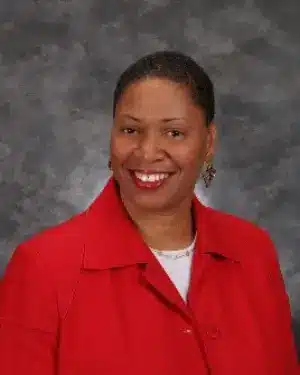
Sharon Mallory,
Executive Director, 2020 Farmers Cooperative
Sharon Mallory, an adept leader with a passion for agricultural sustainability, serves as the CEO of SDM Investments and as the Executive Director of the 2020 Farmers Cooperative. With a background in finance, investment and a keen understanding of the challenges facing farmers, Mallory spearheads initiatives to promote efficient resource utilization, foster community engagement, and enhance market access for cooperative members. Her strategic vision and collaborative approach is propelling the 2020 Farmers Cooperative to new heights, fostering growth and resilience within the agricultural community. Mallory’s commitment to empowering farmers and advocating for their interests is building her reputation as a dynamic and effective leader in the agricultural sector.
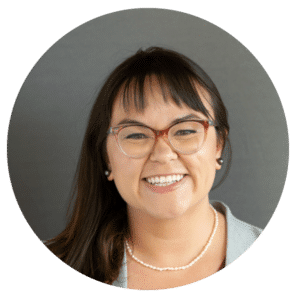
Shavon Prophet,
Shavon Prophet, MBA is a Filipino American bridge builder and social enterprise business professional based in Western Massachusetts. She is the Employee Ownership Advocate that supports and develops cooperatively-owned businesses with a special focus in systems change to address the racial wealth gap.
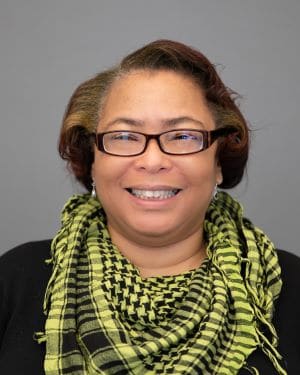
Shelley Miller,
Leader, ICA New Ownership Opportunity
With over twenty-five 25 years of diverse experience in business, law, nonprofit administration, and education, Shelley leads ICA’s New Ownership Opportunity team. She is a former small business owner who shares the benefits of employee ownership and cooperative ownership models with business owners and other community stakeholders.
She has been with The ICA Group since 2019 and her team’s work focuses on its New York City Council supported Worker Cooperative Business Development Initiative work (WCBDI) and the delivery of services through the Massachusetts Center for Employee Ownership (MassCEO).
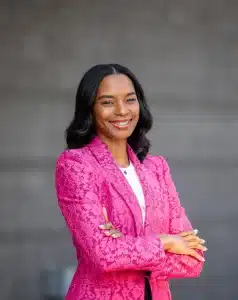
T’wina Nobles,
CEO, Black Future Coop
T’wina is the inaugural CEO of the Black Future Co-op Fund, and a founding architect. She leads the Fund in service of our mission to ignite Black generational wealth, health, and well-being across Washington. T’wina is also senator for the 28th Legislative District of Washington state.
Most recently, T’wina was the President and CEO of the Tacoma Urban League, where she led programs to strengthen and support the local African American community in social equality and economic independence. Previously, T’wina worked as an instructor for Metropolitan Development Council’s College Bound program at Stadium High School and Lincoln High School in Tacoma, as well as served as a PTA leader and a school board member. She also co-founded Ladies First, an in-school and after-school program dedicated to empowering young women and building positive self-esteem. She attended the University of Puget Sound, where she earned her undergraduate degree and a Master of Arts in Teaching.
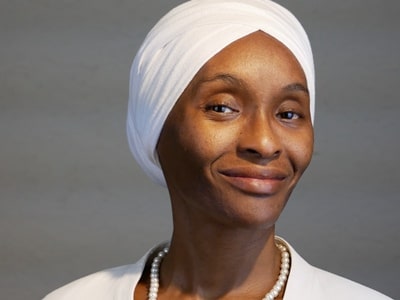
Tamah Yisrael,
Director of Training & Development at Columinate
Tamah Yisrael serves as the Director of Training & Development at Columinate, where she engages directly with communities to bolster organization and empowerment, alongside offering financial management services. A passionate advocate for cultural awareness, social justice, and equitable access to nourishing foods, Tamah is deeply involved in the cooperative movement in New Orleans. In her role as the Education & Outreach Coordinator at Cooperation New Orleans, she focuses on highlighting cooperation as both a cultural expression and a strategic pathway toward black liberation.
Particularly noteworthy is her role in facilitating the merger of three community groups into a Worker Self Directed Nonprofit, paving the way for the establishment of community centers in New Orleans, Miami, and Orlando, FL. Additionally, Tamah and her family have made significant contributions to the cultural and spiritual landscape through their establishment of the Neo Jazz School of Music and their collective efforts in cultural and spiritual organizing. She and her family are currently building a cultural space in New Orleans as the Urban Dream Cooperative.
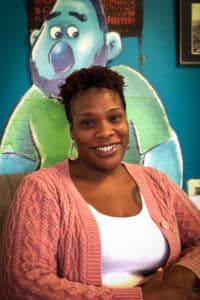
Tia Williams,
Community Organizer
Tia Williams has called Frogtown home her entire life. She was born and raised there, and so were her children. Recently, due to rising costs, she was forced to move to East St. Paul. Displacement from Frogtown is becoming a familiar story, and one Tia is deeply passionate about. Now, with 10 years of organizing experience (6 with FNA) and 2 years of directing experience, Tia’s dedicated to making sure the Frogtown community continues to be a place where historically under-resourced people can live and thrive for years to come.
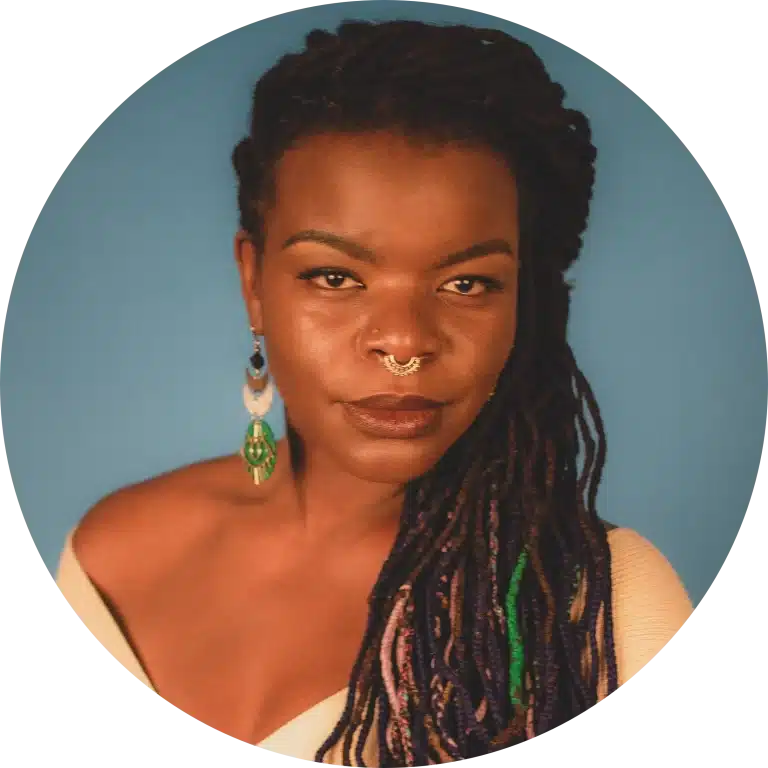
Felicia Perry,
Economic Development Manager, Rondo Community Land Trust
Felicia Perry is a Change Agent and Economic Development Strategist who leads organizations and individuals to their next chapter of growth and long-term success. She works to transform communities leveraging a dynamic skill set of Innovative Thought Leadership, Stakeholder Engagement, and Coalition Building.
She has described herself as an ARTrepreneur specializing in movement, fashion design, performance art, and curating spaces. Felicia danced professionally as a member of the Ananya Dance Theatre from January 2017 to April 2019. Felicia is an on air host of “DesignHER Life” at 98.9 KRSM Community Radio station, where she interviews women and non-binary ARTreprenuers about creating their own life and career paths to support their artistic passions.
Felicia currently serves as Board Chair of Vivid Black Paint Circus Arts and is a Trustee of the Northside Awesome Fund. Felicia Perry is an experienced Leader, with a demonstrated history of working in the non-profit organization management industry. Skilled in Non-profit Fund Development, Organizational Leadership, Management, and Community Organizing. Strong Arts and Media professional with a Marketing and Communications background from Metropolitan State University.

Kenya McKnight-Ahad,
Founder and CEO Black Women’s Wealth Alliance
Kenya McKnight Ahad is an influential economic leader known for her work as a philanthropist, economic strategist, investor, and real estate owner/developer. She is the founder and CEO of the Black Women’s Wealth Alliance (BWWA) and the owner of ZaRah, a North Minneapolis holistic wellness incubator hub focused on empowering African American women-owned businesses.
Under her guidance, BWWA has assisted over 5000 Black women business owners, professionals, and students in Minnesota, providing more than $200,500,000 in small capacity grants to support their wealth ambitions.
A respected figure in the region, McKnight-Ahad collaborates with private, public, and nonprofit sectors to further the cause of Black wealth. In 2022, she was recognized in the history of African American Minnesotans as a prominent Northern star. McKnight-Ahad’s impact includes over 5 billion dollars in economic investments across Minnesota during her 6-year tenure as the first African American to serve as a Met Council appointee to the Transportation Advisory Board. She has raised over $8,000,000 to support her wealth-building endeavors.
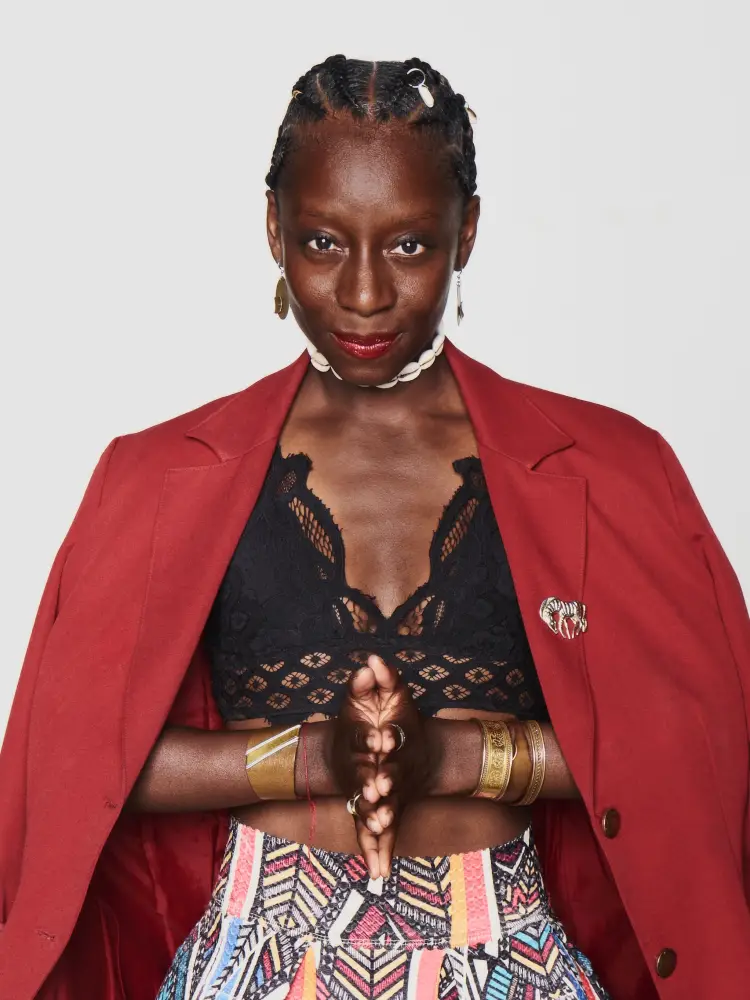
Alanna Morris,
Dancer-choreographer, Educator and Artist Organizer

Demetrius McClendon,
Professional Dancer, Teacher, and Choreographer
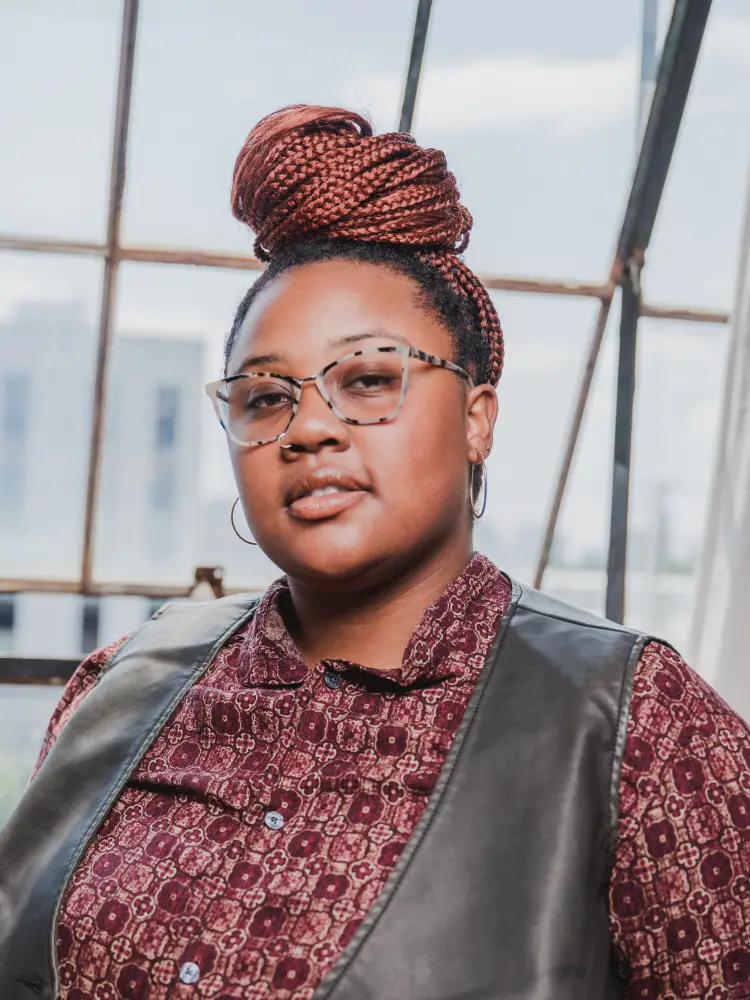
Za’Nia Coleman,
Co-Founder and Executive Director, Tangible Collective
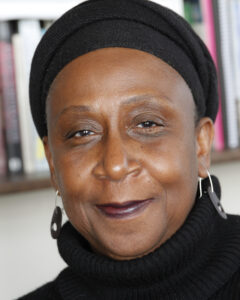
Dr. Rose M. Brewer,
Professor
Dr. Rose M. Brewer is The Morse Alumni Distinguished Teaching Professor and past chairperson of the Department of African American & African Studies, University of Minnesota-Twin Cities. She holds affiliate appointments in Gender Women Sexuality Studies and Sociology. She received her MA and PHD degrees in sociology from Indiana University and did post doctoral studies at the University of Chicago. A social activist and scholar, Dr. Brewer publishes extensively on the Black radical tradition, Black feminism, political economy, social movements, race, class, gender and social change.
She is one of the authors of the award winning book, The Color of Wealth, a number of co- edited volumes including The U.S. Social Forum: Perspectives of a Movement; Bridges of Power: Women’s Multicultural Alliances and Is Academic Feminism Dead?: Theory in Practice. Her most recent co-edited book is Rod Bush: Lessons from a Radical Black Scholar on Liberation, Love, and Justice (2019). Her publications include more than 80 essays, articles, and refereed articles.
She has held the University of North Texas Multicultural Lectureship Award, Sociologist for Women in Society Feminist Lectureship in Social Change, Wiepking Distinguished Visiting Professorship, Miami University of Ohio, visiting scholar in the Social Justice Initiative, University of Illinois-Chicago and a visiting scholar at the Wright-Havens Center, University of Wisconsin-Madison. She is a University of Minnesota College of Liberal Arts Dean’s Medalist, member of the Academy of Distinguished Teachers, recipient of the American Sociological Association’s Distinguished Teaching award, and a Josie R. Johnson Social Justice Award recipient.
She is the 2024 President Elect of the Society for the Study of Social Problems, one of the leading Sociological Associations in the United States.
As an activist scholar, Dr. Brewer is fully committed to building solidarity for a new society for the world’s peoples and planet.
The National Conference on Black Cooperatives Agenda offers a unique three-day learning experience.
The program of content is designed to give cooperative business leaders an edge in today’s fast changing competitive landscape so as to sustain growth and achieve ongoing success.
For senior leaders from across all cooperative industries and across all cooperative sizes.
For leaders and executive teams looking for ideas and inspiration.
For all those who understand the value of knowledge and continuous learning.
What You Will Learn
The conference provides an opportunity to learn from a world class program of business thought leaders and practitioners.
The program has been carefully curated to provide a blend of perspectives on the most important issues facing Black cooperative leaders today.
It offers high level, strategic thinking on the most critical management topics such as leadership, talent, performance and transformation.
Attendees leave with new ideas to help their cooperative organizations grow, and the inspiration to put those ideas into practice.
Why Attend?
We know you need the partnership to continually invest in your ability and resources needed to tackle the complex issues that face our communities. At the National Conference of Black Cooperative Agenda, we’ve got the civic engagement secret sauce to get you re-energized. You’ll benefit from:
Education
Experience more than 20 workshops with actionable takeaways led by cooperative industry experts.
Inspiration
Engage in compelling leadership discussions highlighting best practices in the economic and social impact space.
Connection
Form relationships and engage in deep conversations or the sharing of ideas with fellow changemakers.
Co-Hosts
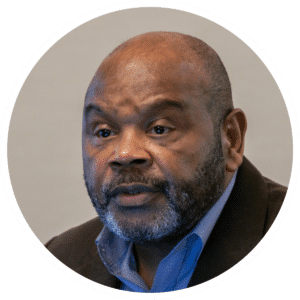
Ron Hantz,
Co-Host
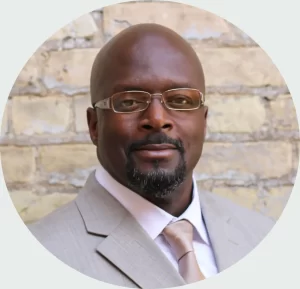
Repa Mekha,
Co-Host
Registration
Special Promotions
GROUP RATE
Have colleagues who also want to attend? Groups of three or more get:
15% discount
STUDENT/INTERN RATE
Are you still in school, or an intern interested in cooperatives? Join us either for only:
$125
Learning
Learn from the brightest minds in the business world and stay up to date on the latest trends in the market. You will leave equipped with the best tools to successfully overcome professional and personal challenges.
Development
Immerse yourself in the inspirational atmosphere of the event and develop new ideas that you can implement within your organization, and in your personal life. Challenge your current business and leadership practices, and open yourself up to new thinking that will help you innovate and address problems in ways you never imagined.
Networking
Connect with more than 200 high-level cooperative professionals. Network for Developing Conscious Communities and Las Vegas Department of Neighborhood Services brings together decision makers, leaders, entrepreneurs, managers of the most important Black cooperatives in United States, all in the same place. Don’t miss the opportunity to grow your network of contacts and expand your business.
Register today and don’t miss any details about National Conference on Black Cooperative Agenda 2024
Sign Up and get information about National Conference on Black Cooperative Agenda 2024
Speakers

Name Surname

Name Surname

Name Surname

Name Surname
Sponsors
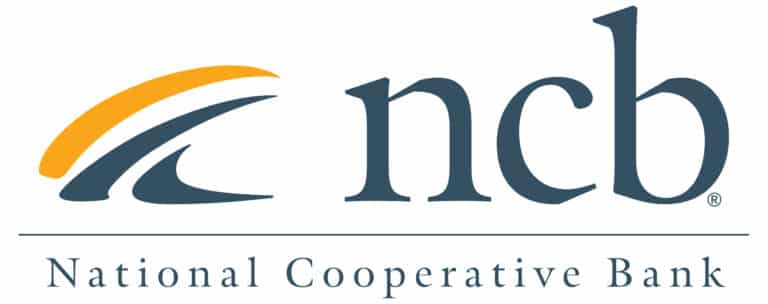
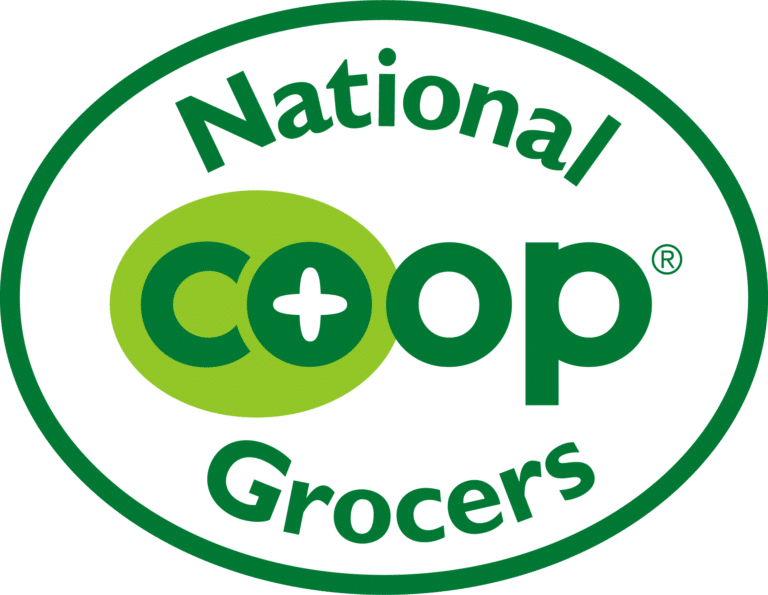
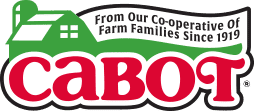

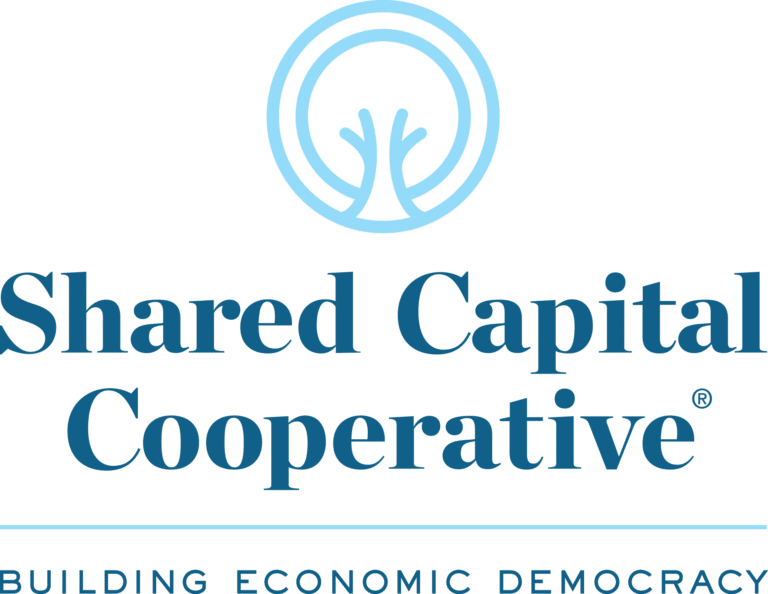
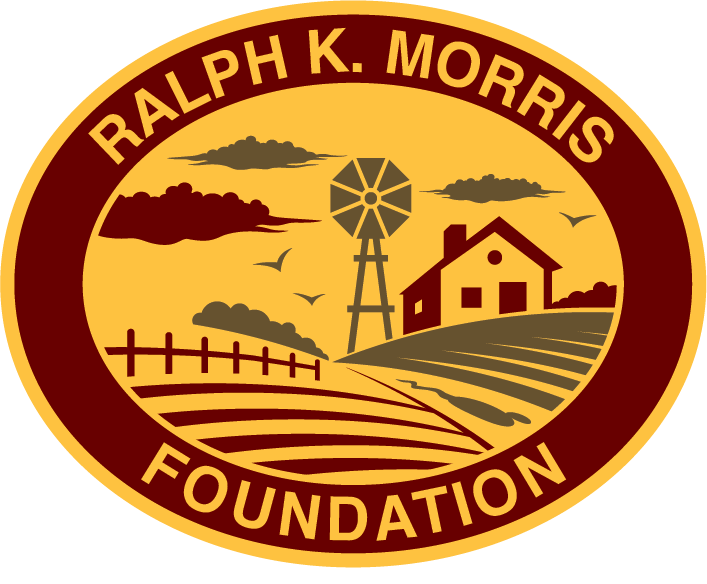
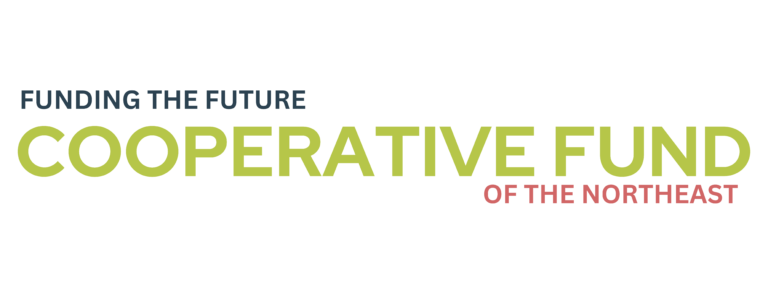
Sponsorship Levels
Economic Equity Partner Sponsorship
$30,000
- Prominent placement company name, logo and social media link on conference website and marketing materials
- Verbal acknowledgment during the opening and closing ceremonies.
- Host a dedicated workshop or panel session on a topic relevant to your organization.
- Option to provide a brief statement in the event newsletter.
- Reserved seating for ten registrations
- Opportunity to include promotional items in registration bags
- Exhibit booth in prime location for displaying products and marketing materials
- Full page ad on inside conference program front cover or back cover
- Exclusive access to VIP networking events
- List of conference participants including name, contact information and email address
Cultural Partner Sponsorship
$20,000
- Featured logo placement on event signage and materials.
- Recognition on conference social media platforms with tagged mentions and highlights.
- Premium exhibit space for increased visibility.
- Reserved seating for six registrations
- Opportunity to include promotional items in registration bags
- 1⁄2 page ad on inside conference program
- Exclusive access to VIP networking events
Legacy Builder Sponsorship
$10,000
- Logo inclusion on event signage and promotional collateral.
- Verbal recognition during specific conference sessions.
- 1 Premium exhibit space for increased visibility.
- Reserved seating for four registrations
- Opportunity to include promotional items in registration bags
- 1/4 page ad on inside conference program
Inclusive Prosperity Sponsorship
$5,000
- Logo inclusion on event signage and promotional collateral.
- Exhibit space for increased visibility.
- Reserved seating for two registrations
- Opportunity to include promotional items in registration bags
- 1/8 page ad on inside conference program
Harmony Advocate Sponsorship
$2,500
- Logo inclusion on event signage and promotional collateral.
- Exhibit space for increased visibility.
- Reserved seating for two registrations
Miscellaneous Sponsor
$ 1000 – $1500
Drink Sponsor
$7.500
As a Drink Sponsor for this prestigious event, your organization will have the unique opportunity to engage with a diverse and influential audience in a relaxed and intimate setting. This sponsorship level is not
just about brand visibility, but also about creating meaningful connections and showcasing your commitment to empowering and uplifting Black communities.
Sponsorship Benefits
- Brand Visibility: Your logo and company name will be prominently displayed at the event, on the conference website, and in all marketing materials.
- Exclusive Acknowledgment: Verbal acknowledgment during the Afterglow Networking Event, recognizing your significant contribution.
- Engagement Opportunities: Interact with attendees, share your brand story, and build lasting relationships with community leaders and entrepreneurs.
- Social Media Highlights: Featured posts on our conference social media platforms, acknowledging your support and engagement.
- Complimentary Passes: Receive a number of complimentary passes to the conference, allowing your team to participate fully in the networking and learning opportunities. Investment: $7,500. Your support as a Drink Sponsor will not only enhance the experience of our conference attendees but will also position your organization as a leader in fostering economic empowerment and community development. We believe this partnership will be mutually beneficial and aligns perfectly with your organization’s values and goals.
We have enclosed further details about our respective organizations, the conference agenda and the impact of our work
Application for Sponsorship
Sponsorship Level/Base Price
Economic Equity $30,000
Cultural Partner $20,000
Legacy Builder $10,000
Inclusive Prospersity $5,000
Harmony Advocate $2,500
Miscellaneous $1,000 / $1,500
Drink Sponsor $7,500
Payment Information
C/O Network for Developing Conscious Communities,
28 46th Place NE WDC 20019 or on website electronically
Hotel
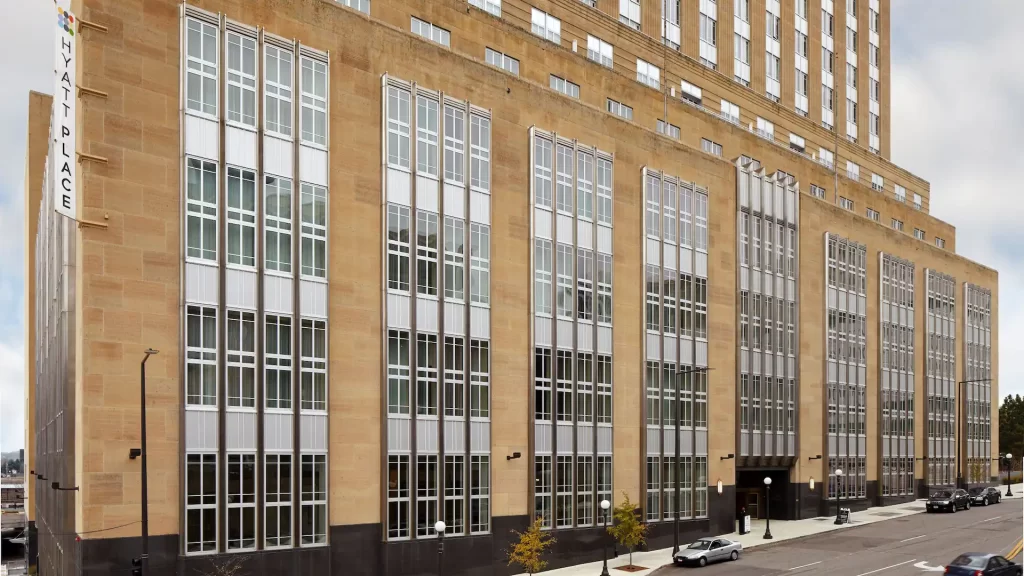
Hyatt Downtown Saint Paul
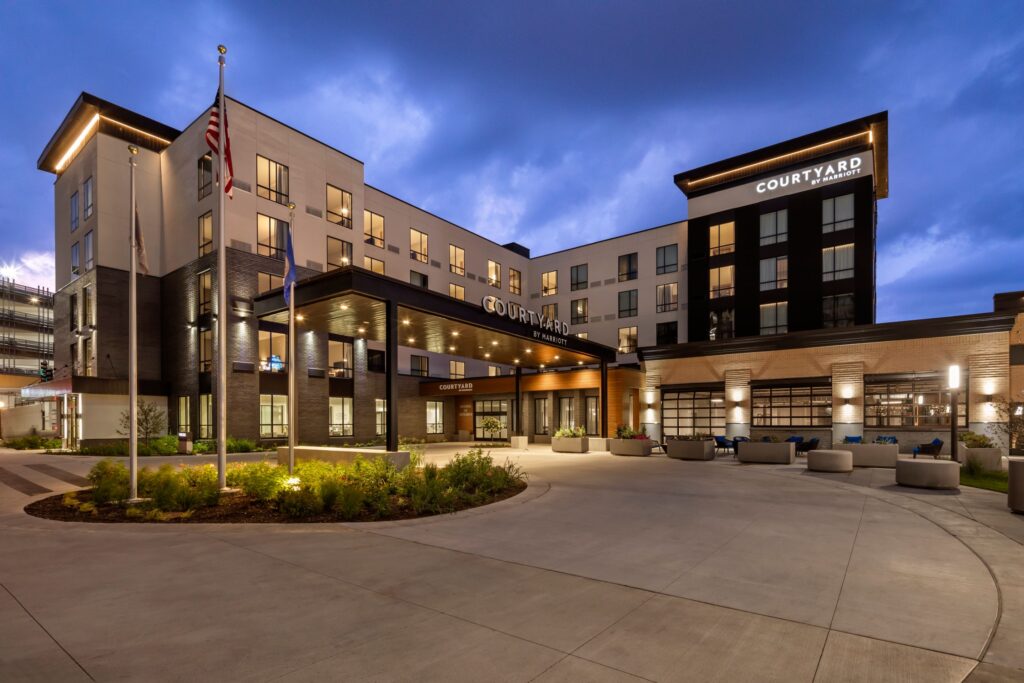
Marriott
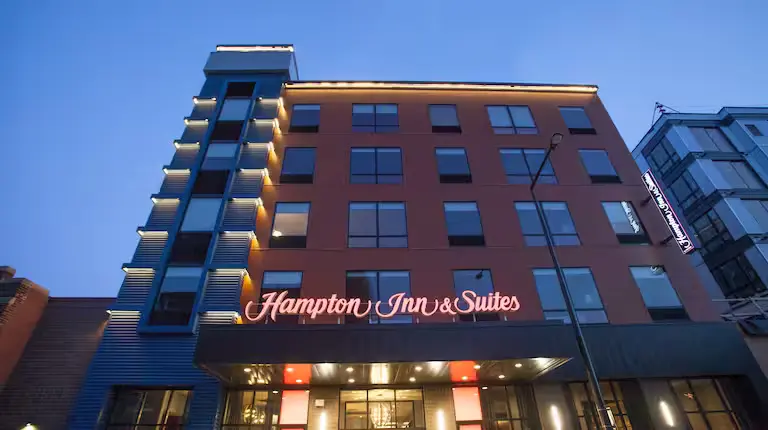
Hampton Inn
2024 Conference Images
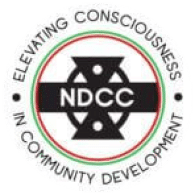
Contact
410-961-8697 (Direct)
202-379-3888 (Fax)
DC 20019
